a publication of the University of Tennessee at Chattanooga College of Arts and Sciences
SPRING 2023
on the cover Psychology students take a trip to Europe to learn more about the history and development of the study of psychology. Read more on page 18.
Student submitted photo of the Tower Bridge in London.

ISLAMIC INTRODUCTION: PROFESSOR SAEID GOLKAR’S “INTRO TO ISLAM” ARCHAEOLOGY
SPRING 2023
military science
30
TAKING TO THE SKIES: UTC’S FLIGHT EDUCATOR PROGRAM
natural sciences and mathematics
MATH MAJOR = CAREER MULTIPLIER PRODUCE-ING CONFIDENCE: ENVIRONMENTAL STUDIES COURSE TOUCHES ON MENTAL HEALTH, NATURAL SCIENCE AND LAW
MURRAY RANEY’S HISTORIC CHEMICAL DISCOVERY
THE HISTORY OF SOUTHERN CULTURE THROUGH ITS FOOD STEAM CAMP: LOADS OF LEARNING DISGUISED AS FUN NEW DEGREES CONNECT PHILOSOPHY,
creative director
graphic designer
photographer
INSTRUMENTAL IMPACT: RANDALL COLEMAN ARTS & SCIENCES LAUNCHES RESIDENTIAL LEARNING COMMUNITIES PARKINSON’S DOESN’T STOP THE TREMBLING TROUBADOURS 04 08 10 features BRONWYN MCEWEN RETURNS TO THE STAGE AFTER 32 YEARS 12 arts
eng AGING COMMUNITIES FINDS RESOURCES FOR LIVING WITH ALZHEIMER’S 22 24 26 28 humanities
LAW AND MEDICINE
dean
PAM RIGGS GELASCO editor
GINA STAFFORD
STEPHEN RUMBAUGH writers
SHAWN RYAN
CHUCK WASSERSTROM
JILL KNIGHT
ANGELA FOSTER
UTC is a comprehensive, community-engaged campus of the University of Tennessee System. UTC is an EEO/AA/Titles VI & IX/Section 504/ADA/ ADEA institution. E041002-013-23
AND ARROWHEADS PSYCHOLOGY TRIPPING: STUDENTS’
TRIP TO EUROPE 14 16
behavioral and social sciences DEAN’S MESSAGE BOOK NOOK STUDY ABROAD DONOR SPOTLIGHT ALUMNI NOTES 03 40 42 44 46 in every issue 34 36 38 02 method SPRING 2023
TWO-WEEK
20
message from the dean

PAMELA RIGGS GELASCO

Alumni, faculty, staff and friends,
I am happy to present to you our latest issue of Method, the University of Tennessee at Chattanooga College of Arts and Sciences magazine. As I enter my third year as Dean of the College, we have been immersed in efforts to recover a normal campus environment after the disruption of the COVID-19 pandemic. One of the advantages we have on this campus is living in the vibrant city of Chattanooga, and our faculty and students frequently use the city as an extension of the classroom. You can read about several such examples of community engagement in this issue of Method, from a STEAM camp collaboration, a local archaeology project, to working with locals suffering from Parkinson’s disease. Our students and faculty venture beyond Tennessee as well, to locations across the globe, to experience first-hand the cultures, the languages and the history that they study on campus. We will also share with you how we are expanding our curriculum offerings in the interdisciplinary space between our traditional disciplines, challenging students to examine the complex issues of our day through multiple angles of reflection. Lastly, we hope you will enjoy reading about the accomplishments of our alumni, faculty and students as they pursue research and service to the community. Enjoy these updates and we thank you for your continued advocacy for the many programs in the College of Arts and Sciences.
03 UNIVERSITY OF TENNESSEE AT CHATTANOOGA COLLEGE OF ARTS AND SCIENCES UTC.EDU/CAS
IMPACT INSTRUMENTAL IMPACT

04 method SPRING 2023
Whad a little more than 30 members.
It was something of a change from his previous position as the associate director of the University of Alabama’s Million Dollar Band. It fields 400 members.
“When I took the job here, I knew there were 33 kids signed up for band and, for a university this size, that’s not right,” Coleman says.
He has made it right and then some. As of June 2022, 11 months after he arrived, the Marching Mocs had 140 students signed up, a 425% increase and the highest number in more than a decade.

“I said, ‘You know, if we could be 85 or 90 this year, I think that’d be great. That’d be positive,” Coleman says. “The growth that’s happened this year has just really been a shock to me.”
One of Coleman’s first goals was visiting some regional high schools within a two-hour radius of Chattanooga, including Huntsville and Birmingham in Alabama, Nashville and Knoxville in Tennessee, and the northern suburbs of Atlanta.
“Where you grow a band program is you have good relationships with middle school and high school directors who encourage their kids, not only to keep playing but, ‘You should take band at UTC,’” says Coleman, who spent 25 years as a band director at high schools around Atlanta.


05 UNIVERSITY OF TENNESSEE AT CHATTANOOGA COLLEGE OF ARTS AND SCIENCES UTC.EDU/CAS
“First of all, he really knows his craft, and I think that’s a big draw, but he’s not arrogant about it. As my mother used to say, ‘He’s not full of himself,’” says Wright, who has known Coleman for 30 years.
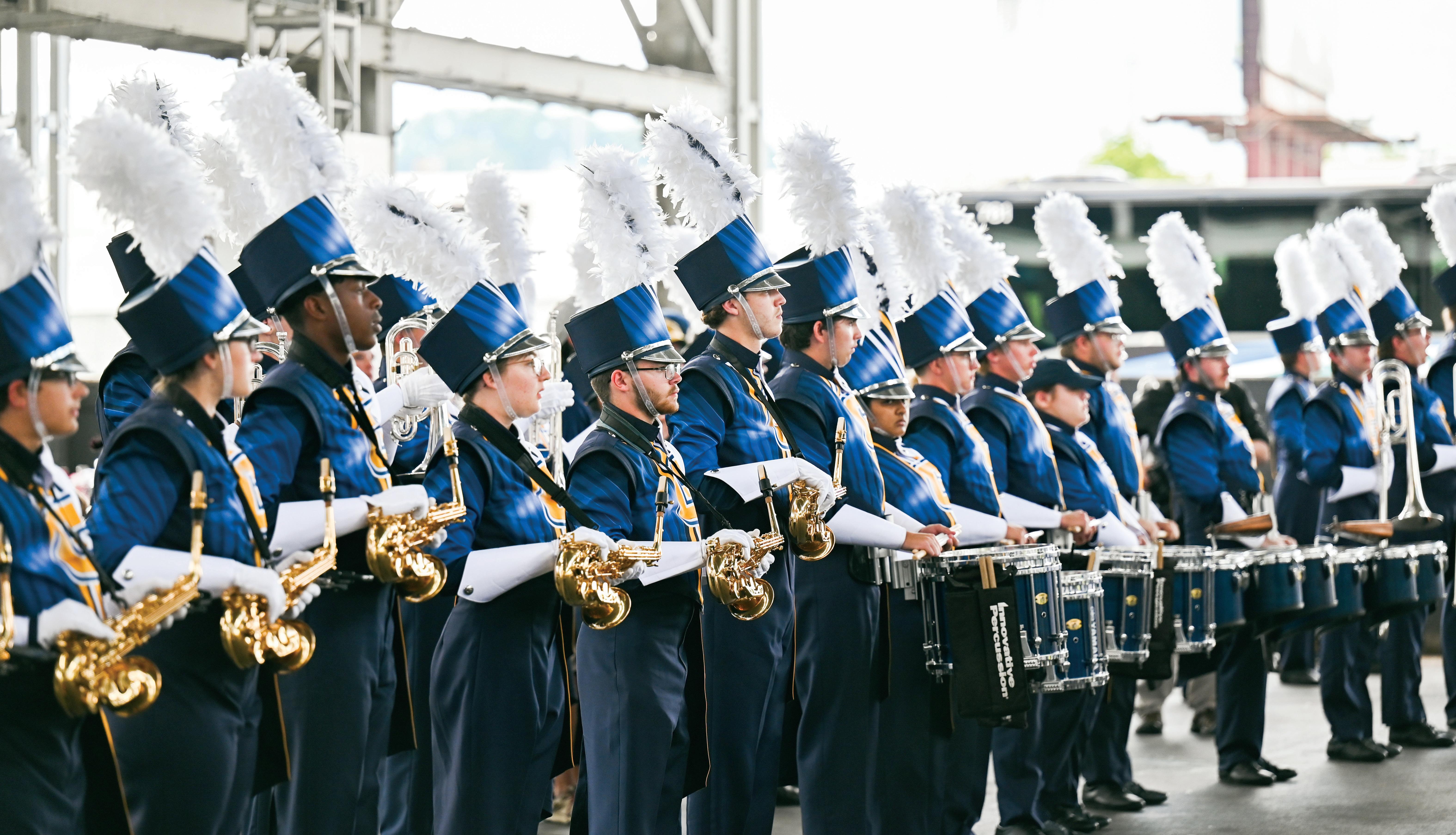
06 method SPRING 2023
Tracy Wright, band director at Ringgold High School in Georgia, says Coleman’s background makes it easier for him to connect with students, but there’s more to it than that.
11 months after Coleman arrived, the Marching Mocs had 140 students signed up, a 425% increase and the highest number in more than a decade.
“He’s a warm and welcoming person, and I think that attracts kids, but it attracts their parents because you have to sell the parents on it as well, you know?”
As one might expect, COVID also played a role— and still plays a role—in the growth of Marching Mocs. With the pandemic clamping down after March 2020, any Marching Moc who started at UTC in fall 2019 may have been somewhat idle for almost two years, Coleman notes.

“The day-to-day stress of the pandemic is over, but we’re going to feel the effects of COVID for a long time because we basically have two years with a lot of students who don’t know what it’s like to be a band,” he says.
“So we’re dealing with a lot of young band members and that’ll take a long time to catch up because, try as you may, there are going to be habits that need to be broken. That’s a lot harder to do than just starting off the right way.”
07 UNIVERSITY OF TENNESSEE AT CHATTANOOGA COLLEGE OF ARTS AND SCIENCES UTC.EDU/CAS
After more than a year of planning, the College of Arts and Sciences launched its official Residential College in August 2022. Housed in Decosimo Apartments, the program is a partnership between the College of Arts and Sciences and UTC Housing and Residence Life. The initiative focuses on four pillars to promote students’ personal development and success:
Wellness: Personal growth and self-authorship/ownership.
Identity: Who residents are and whom they want to become.
Scholarship: Preparing residents for academic and professional success.
Engagement: Creating lifelong relationships and forging a connection to the residence hall and UTC.
The Residential College helps develop students’ sense of belonging within and outside the classroom and encourages them to develop skills they use in academic and professional success. Support services and other resources are provided to help students.
“We believe that learning doesn’t only happen in the classroom,” says Nikolasa Tejero, director of the Residential College and associate dean of the College of Arts and Sciences.
“We use these communities to engage students in the learning process in their residences and the community at large. We cultivate a sense of belonging that promotes inclusion and instills confidence. As a result, our students are motivated and empowered to try new things, persist and push themselves to succeed. The impact we are already seeing is significant.”
Students live in apartment-style suites, each consisting of four private bedrooms, two shared bathrooms and a common kitchen and living room.
College of Arts and Sciences launches
A&SRC—residential learning communities
Students also have priority access to outdoor congregational spaces and the adjacent Stacy Town Center facilities, which hold activities throughout the year.
The Residential College is comprised of five residential learning communities. Four are sponsored by specific academic departments within the College of Arts and Sciences with specific curricular and disciplinary themes:
Life Out Loud, sponsored by the Department of English and the Department of Modern and Classical Languages and Literatures. Students passionate about studying languages (English, Spanish, French, Latin and others) and literature in those languages.
Music Row RLC, sponsored by the Division of Music in the Department of Performing Arts. Freshman, sophomore and transfer students who love music and musical performance.
PHASES: Politically, Historically and Socially Engaged Students, sponsored by the Department of Political Science and Public Service and the Department of History. Students majoring in political science and history study the local history and politics of the Chattanooga area with the goal of making them active citizens with a stake in their communities and the region.
Sustainable Mocs, sponsored by the Department of Biology, Geology and Environmental Science. Introduces students to the interdisciplinary nature of biology, geology and environmental science and shows how each discipline interacts with issues related to sustainability.
CAS General, sponsored by the College of Arts and Sciences. For freshmen majoring in degree programs within the College of Arts and Sciences. It also welcomes undeclared students interested in exploring degree programs within the College of Arts and Sciences.
08 method SPRING 2023
RESIDENTIAL COLLEGE
Eighty-five students signed up for the Residential College in its initial year.
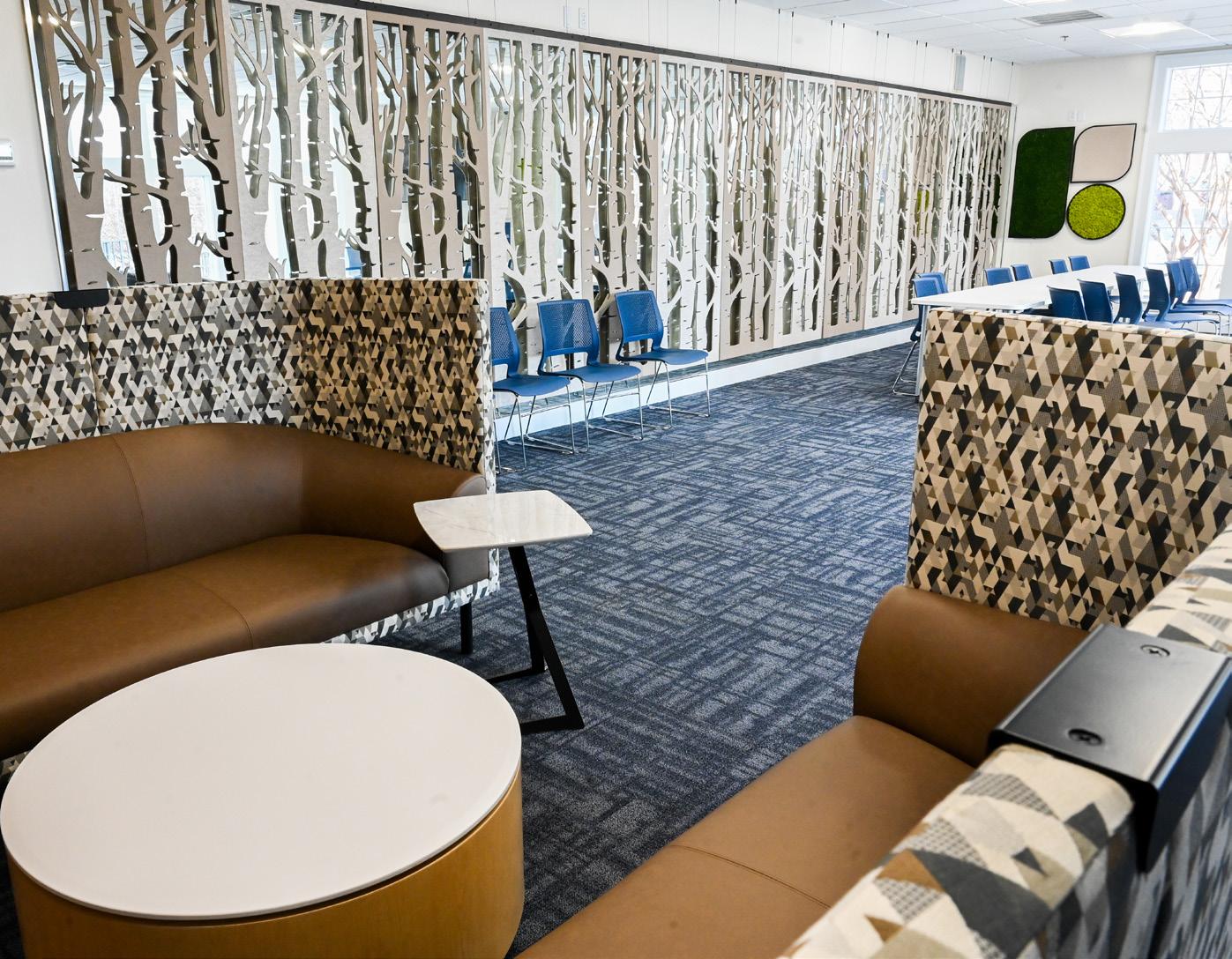
“These students are full of passion, energy and purpose, which Residential College coordinators, resident assistants and Housing and Residence Life partners help channel into actions that build habits for academic success,” Tejero says.
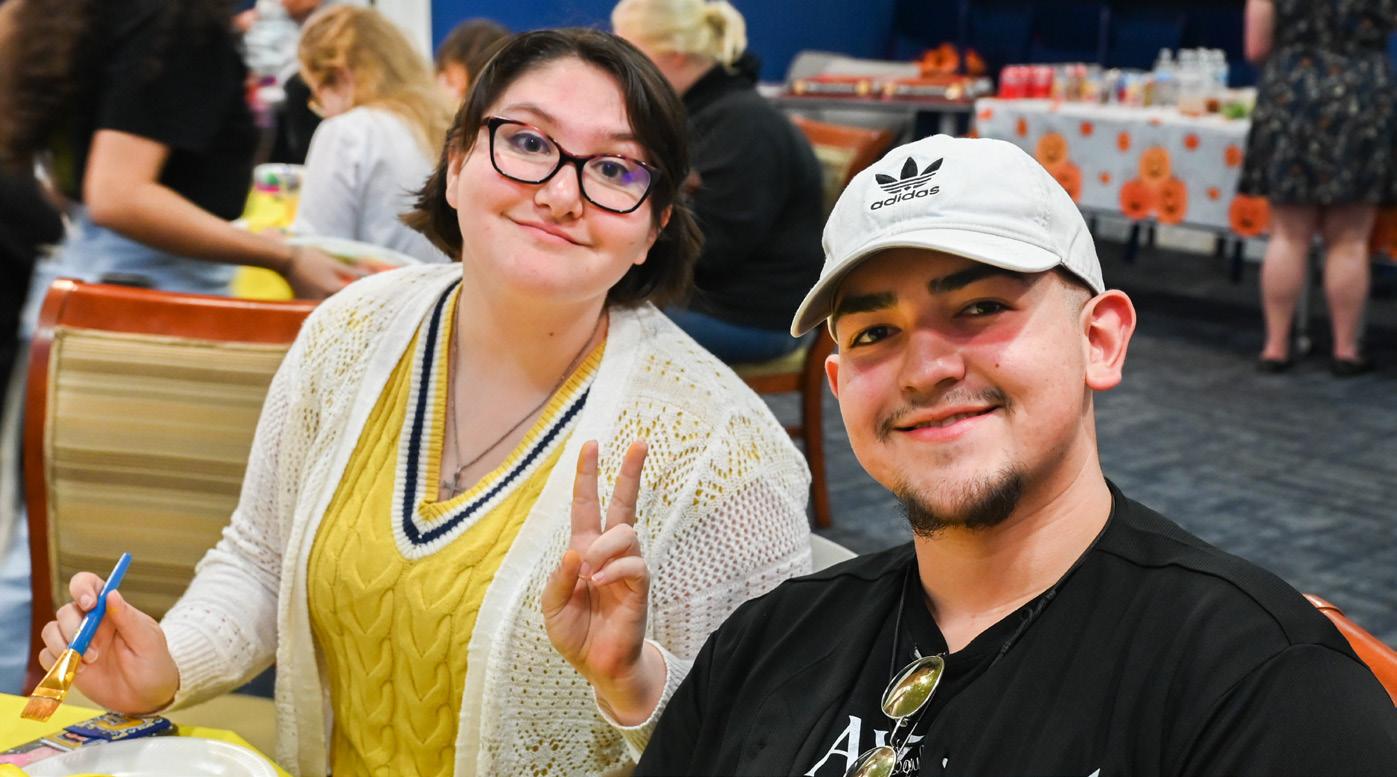
Plans call for three additional RLCs to launch in August 2023. They are:
Content Creators, sponsored by the Department of Communication. For students interested in creating content to share with others, whether that’s taking photos, making videos, writing, making podcasts or other methods of reaching out. Open to students from all majors and will acquire the skills to build a social media brand from the initial idea to content creation.
Data ChAMPS: Chemistry, Analytics, Math and Physics, sponsored by the Department of Chemistry and Physics and the Department of Mathematics. For students interested in data analysis in the fields of chemistry, physics and mathematics.
MEDIC: Medical Dental Interests Company, sponsored by the Department of Biology, Geology and Environmental Science and the Department of Chemistry and Physics. For students planning to apply to medical school or dental school after the completion of their four-year degrees at UTC.
09 UNIVERSITY OF TENNESSEE AT CHATTANOOGA COLLEGE OF ARTS AND SCIENCES UTC.EDU/CAS
to find out more about the A&SRC residential learning communities.
TOP RIGHT: CANDID PHOTO OF STUDENTS AT AN A&SRC EVENT. BOTTOM RIGHT: THE AVIARY, A NEWLY RENOVATED STUDENT SPACE IN STACY TOWN CENTER.
Curious? Scan
ARTS AND 2022SCIENCES
Since the creation of the Trembling Troubadours, Katherine Goforth
Elverd—director of music therapy at the University of Tennessee at Chattanooga— had a goal of having the group perform the national anthem before a Chattanooga Lookouts minor league baseball game.
On July 24, 2022, that goal was achieved.
The Trembling Troubadours, a choir comprised of singers with Parkinson’s disease, sang “The Star Spangled Banner” before the Chattanooga Lookouts baseball contest against the Tennessee Smokies.
Joining the nearly two dozen singers were Elverd and her mother, Kathy Goforth, the area business development director at Life Care Centers of America.

The mother/daughter duo created the Trembling Troubadours in 2019, shortly after Elverd joined UTC.
Elverd says the idea of the choir itself is very much rooted in the fundamentals and principles of music therapy.
She explained that music therapists use music as a tool to facilitate interaction and achieve non-musical outcomes.
“The great thing about music therapy is that it is related to music. It’s enjoyable. It’s soothing. It’s pleasurable,” she says, “but we’re working on these functions that someone may have difficulty engaging in. They may be doing speech therapy or occupational physical therapy that isn’t as fun and enjoyable.”
An example of that would be in the pediatric medical setting, where music is used to help decrease pain and increase relaxation.
“Or with Trembling Troubadours, it’s our Parkinson’s choir—where I’m going to use music to help with increasing breath support,
10 method SPRING 2023
The Trembling Troubadours, a UTC-sponsored choir comprised of singers with Parkinson’s disease, rehearse at the Life Care Center of Hixson.
Parkinson’s doesn’t stop the Trembling Troubadours
vocal volume and articulation,” Elverd says. “The way the music is used can be both actively and passively with the clients. It just depends on what their needs are.
“What makes music therapy music therapy is it’s an individualized relationship between the client, the therapist and the music.”
She says the supportive setting of the Trembling Troubadours creates group cohesion and a sense of belonging. The Troubadours meet every Friday at the Life Care Center of Hixson, beginning each session with social engagement before working on breath support, vocal volume and articulation.

Each Friday session includes breathing techniques in which participants are simply working on breathing in, breathing out, engaging their abdominal muscles and diaphragm to help with that breath control, she says.
“I then integrate it in with vocal warmups where I’m challenging them with different sounds, different speeds or tempo of which we’re singing,” Elverd says, “then we have a standard repertoire that we rehearse and then ideally perform.
“For Trembling Troubadours and anyone receiving music therapy, there is no preconceived notion that they need to know how to sing or read music, play an instrument, or even know how.
Elverd was recently awarded a Tennessee Arts Commission Arts Build Communities (ABC) grant for her work with the Trembling Troubadours. As part of the final report, she was asked to share the project’s impact.
“I thought, ‘Their words are better than my words,’ so I asked them if any of them wanted to volunteer to send me a couple of sentences
about the impact of Trembling Troubadours on them,” Elverd recalls.
Six volunteered to write about the group’s impact, including John Rudat.
“I like the social, supportive aspect. Conversations among members are commonly about things unrelated to our affliction, but we do share our experiences regarding the disease and various treatments we are having. Singing about silly love songs makes me smile, but singing our national anthem on July 24, 2022, before the Lookouts game, simply makes me proud,” wrote Rudat, who has been singing in choruses for 50Rudat and the Trembling Troubadours use their singing as a way to offset the symptoms of Parkinson’s.
“My speech and volume are affected, which is common to those with Parkinson’s, but not when I am singing. The breathing exercises remind us that we must breathe from the diaphragm and not the throat.”
11 UNIVERSITY OF TENNESSEE AT CHATTANOOGA COLLEGE OF ARTS AND SCIENCES UTC.EDU/CAS
Katie Elverd, director of UTC’s music therapy program, leads the group in rehearsal.
Music therapists use music as a tool to facilitate interaction and achieve non-musical outcomes
WIFE, MOTHER, ACTRESS

Bronwyn McEwen returns to the stage after 32 years

In 1990, when she was 25, Bronwyn McEwen enrolled at the University of Tennessee at Chattanooga as a theatre major.
She quit nine months later to marry Warren McEwen. Their daughter Mary Catherine was born four years later.
“I had two major goals in life,” she says. “The biggest was to be a wife and a mom, and the second was to be an actor.”
Acting never left her mind during motherhood, though, and in spring semester 2022—32 years after she left college and at the age of 57—she returned to UTC to finish her degree as a theatre major.
Then came her first acting role, ever. She played The Nurse in the UTC Department of Performing Arts, Theatre Division’s fall 2022 production of “Romeo and Juliet.”
“I just feel privileged to have this be my first experience,” she says.
Anne Swedberg, associate professor in the theatre division, has been McEwen’s instructor for three courses—Acting 1, Theatre History 1 and Voice and Body. Having McEwen as a student has been “a great pleasure,” she says.
“She is curious, eager to learn as much as possible and enthusiastic about everything she undertakes,” Swedberg says.
Undertaking acting seems a natural fit for McEwen, who is almost electric in her energy level—whether talking about her past, present or future.
Although being a wife and mother was No. 1 on her goal list, the acting bug came first. In 1982, months after graduating from Chattanooga Christian School, she spent 11 months searching for fame and fortune in Los Angeles.
“I was young and naïve, and I thought, ‘I’m just gonna show up over there and they’re going to say, ‘Oh yes, we want you.’”
No one says that, but she did win a car on “The Price Is Right.”
Dejected, she returned to Chattanooga. Five years later, despite
feeling too old for college, she enrolled as a theatre major at UTC.
A semester and a half into her college career, she met—or re-met, actually—Warren McEwen. They first met the year before in a Bible study for singles in a friend’s home but didn’t click, she says.
“In fact, we had zero interest in each other.”
A career accountant and now a lecturer in the Department of Accounting in the Gary W. Rollins College of Business, McEwen earned an MBA at UTC in 2018.
Along with her husband, her second daughter—also named Bronwyn—graduated with a business administration degree from UTC in 2018. Their youngest son, Jack, received a bachelor’s in finance at UTC in December 2022.
Will, their oldest son, earned bachelor’s degrees from the College of Charleston in finance and economics. Daughter Mary Catherine is on schedule to earn a bachelor’s degree in psychology from an online university in spring.
As for Bronwyn McEwen—the mom—she aims to graduate in 2026 and has concrete plans beyond that.
“The goal isn’t to just have fun here in school and get my degree, which is important,” she says, “but the whole goal of it is to learn how to act and then be able to audition for things.
“I don’t want to be 70 when I graduate.”
13 UNIVERSITY OF TENNESSEE AT CHATTANOOGA COLLEGE OF ARTS AND SCIENCES UTC.EDU/CAS
“I had two major goals in life. The biggest was to be a wife and a mom, and the second was to be an actor.”
Islamic Introduction
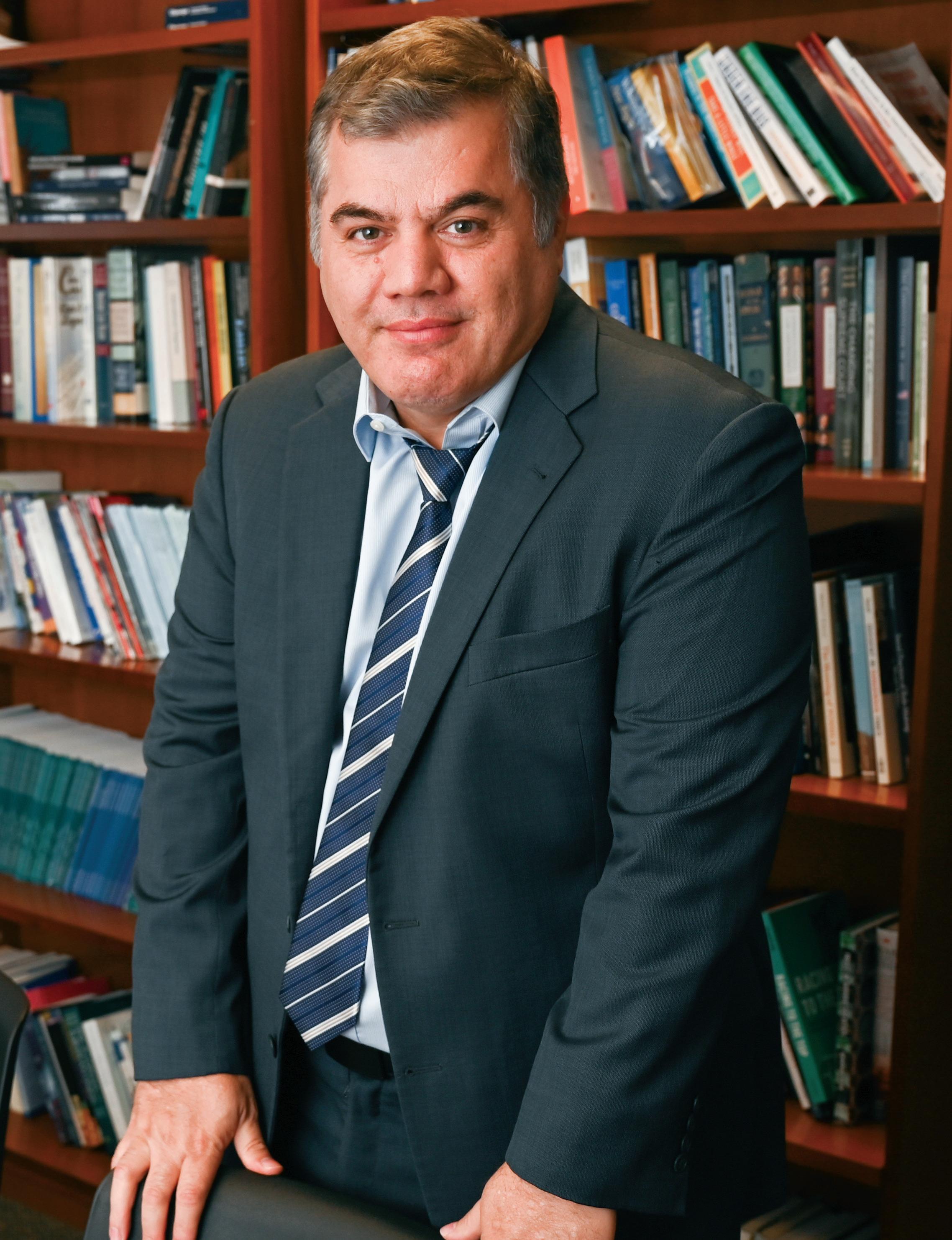
14 method SPRING 2023
When Saeid Golkar teaches the “Intro to Islam” course, one of the first things he asks students is, “What do you know about Islam?”
Loud silence.
“They usually don’t want to say anything about that. They prefer not to talk about it. I think they think I want to enforce my ideas on them, so they try to be cautious,” says Golkar, assistant professor in the Department of Political Science and Public Service at the University of Tennessee at Chattanooga.
“I can say most of my students don’t know anything about Islam,” he continues. “Or, if they know, they have a very negative stereotype about Islam.”
A native of Iran and a Muslim, Golkar came to the United States in 2009 when he was run out of his teaching position at the University of Tehran for not being Muslim enough. He didn’t blindly agree with the country’s political regime—ruled by Supreme Leader Ali Khamenei—which demanded unquestioning belief in the creation of an Islamic state around the world.
An internationally recognized expert on Islam, Golkar’s resume is several pages long and cites multiple instances of being interviewed by national and international news outlets including Time, Newsweek, The Washington Post, Christian Science Monitor and CNN.
He has published dozens of essays in journals worldwide, authored a book titled “Captive Society: The Basij Militia and Social Control in Iran,” and is working on another, “Dictator’s Educational Dilemma: State and Political Control of Universities in Iran.”
He has been a member of such think tanks as The Woodrow Wilson International Center for Scholars, the International Institute for Strategic Studies and the National Endowment for Democracy.
In all his work, one of his primary goals is to show Americans—and Western nations, in general—“that the Islamic world is not really a homogenized group,” says Golkar, whose family still lives in Iran.
Islam is the official religion in 26 countries around the world and has 1.8 billion followers. It is divided into several sects, with Sunni and
Shia the most familiar, but there are several smaller ones such as Zaydi, Sufi and Bahá’í. Different sects have different views of what Islam is and how it should be practiced.
With that many Muslim countries, people and beliefs, there is no way everyone acts the same, Golkar says.
“Some of them are crazy without any doubt,” he says. “My idea is, “OK, let’s talk about who these crazy people are. Not everybody is crazy.”
For people in the United States and its allies, one of the major obstacles to understanding Islam is the definition of “rational,” he adds.
When a Muslim blows himself up or stabs or shoots others in the name of Islam, it’s entirely rational to believe that all Muslims are crazy, Golkar says. Yet, to Muslims who kill themselves and others, doing so is rational.
“Why? Because you are going to heaven and you meet the prophet, and if you are crazy, you believe that 72 virgins are also waiting for you,” Golkar says.
“If you are poor, unemployed and are suffering from inequality, discrimination, this is a very rational thing that you kill yourself in the name of Allah and you go and meet all of this. This is the part that the Westerners usually don’t get.”
The thought process of Muslim leaders like Khamenei can be seen in the actions of Russia’s Vladimir Putin and China’s Xi Jinping, Golkar says.
“All of them are obsessed that they want to create a great civilization,” he says. “They see themselves as somebody who is coming to realize this idea.
“This is not something that we understand here. We are very shortsighted in the West. We have an election. We just want to go to the election and get to vote, so we have to satisfy our constituency. The story is very different in authoritarian regimes.”
Just look at the Russian invasion of Ukraine, Golkar says. Although the warning signs were in plain view and even discussed by some experts, the overarching belief was that Putin wouldn’t actually do it.
“But that’s how the dictators think,” he says. “They don’t think like us; they don’t have the responsibility to answer to the public. There is no election. They have their own mentality.”
15 UNIVERSITY OF TENNESSEE AT CHATTANOOGA COLLEGE OF ARTS AND SCIENCES UTC.EDU/CAS

16 method SPRING 2023
Archaeology and Arrowheads: Student discoveries on display at Chickamauga Battlefield

The arrowhead may be 10,000 years old.
Bullets, a cannonball fragment and buttons trace back to the Civil War. A rusty knife and fork are from World War I.
17 UNIVERSITY OF TENNESSEE AT CHATTANOOGA COLLEGE OF ARTS AND SCIENCES UTC.EDU/CAS

18 method SPRING 2023
Morgan Smith, UTC assistant professor of anthropology
“ It shows a lot of trust in the professionalism of the archaeology program and the promise of the students.”
Each is on display in glass cases at the Chickamauga Battlefield Visitor Center in Fort Oglethorpe, Georgia.
Each was uncovered on the battlefield by a student at the University of Tennessee at Chattanooga.
Over the course of several weeks in 2020, students found dozens of Civil War artifacts, including minié balls—the bullets of the war—pieces of flags, shards of 150-year-old glass, chunks of charcoal from campfires and nails from wooden boxes soldiers burned for warmth.
“It was the first archaeological work that had been done on the battlefield in quite some time, so we thought it’d be kind of fun to showcase the community partnership with UTC and the National Park Service,” says Morgan Smith, UTC assistant professor of anthropology who led the 2020 explorations.
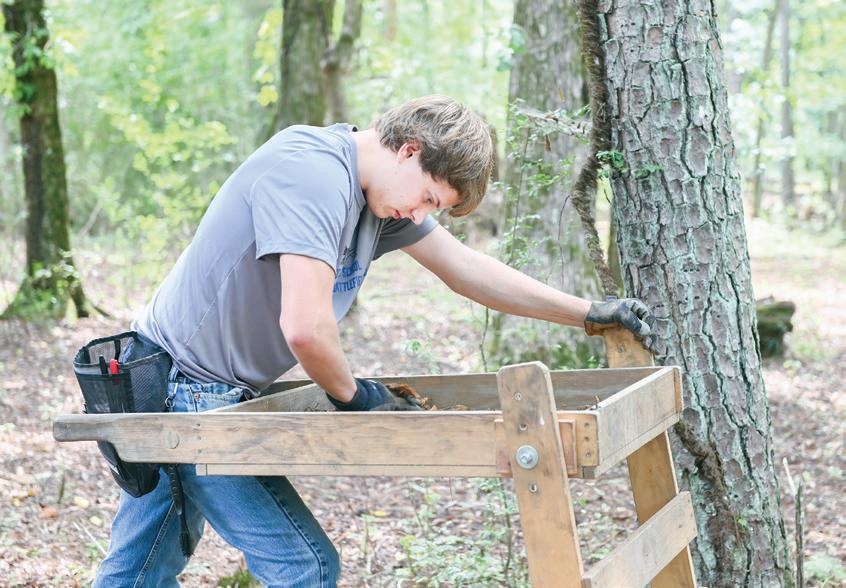
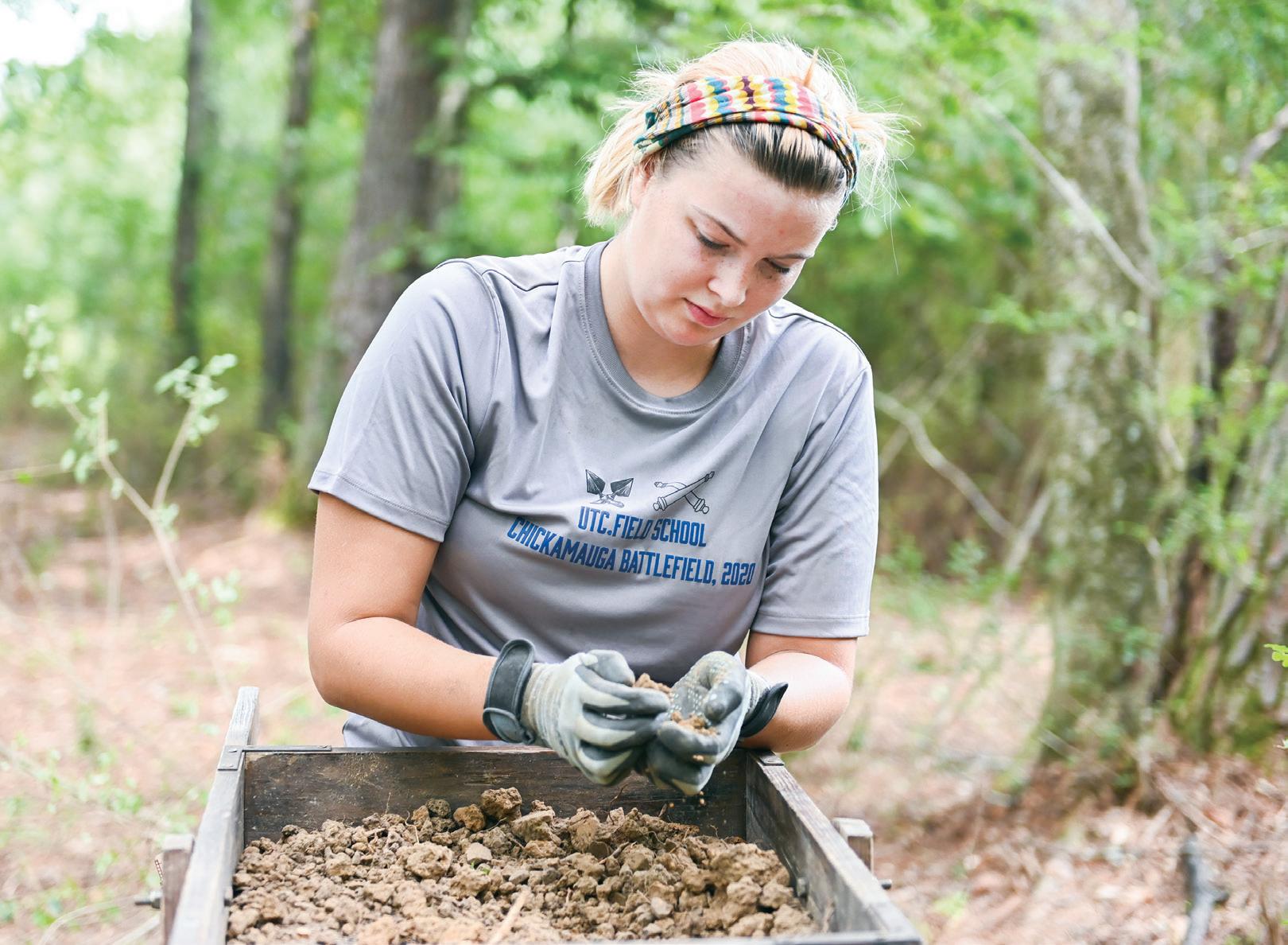
“It shows a lot of trust in the professionalism of the archaeology program and the promise of the students.”
By digging, uncovering and identifying the artifacts, students get the chance to conduct the same type of work they’ll be doing if they choose a career in anthropology or archaeology, Smith says.
In addition, the National Park Service gets archaeological surveying done for free as well as making sure the historic significance of the artifacts remains intact.
“As cool as it may be to have your very own minié ball to take home and
show off, it ultimately takes away the provenance of that item and its correlation to the park, as well as a part of the greater picture that it can show if it is found in its origin,” says Abbey Vander Sluis, who graduated from UTC in 2018 with a bachelor’s degree in anthropology and now works at the Chickamauga Battlefield as an archaeological technician.
“Once an artifact is removed from the site where it was found, the artifact loses its historic value. We no longer understand the circumstances and events surrounding that artifact.”
Vander Sluis helped curate the exhibit of UTC-uncovered artifacts, working with the battlefield’s Museum Curator Julia Poland.
“It was very exciting to be on the other side of the archaeological world and working in the museum aspect, postcleaning and cataloging of the objects,” Vander Sluis says. “I like to think that I helped connect the park with UTC for future field-school opportunities.”
19 UNIVERSITY OF TENNESSEE AT CHATTANOOGA COLLEGE OF ARTS AND SCIENCES UTC.EDU/CAS
Students in Morgan Smith’s Field Studies archaeology class uncover Civil War artifacts at the Chickamauga Battlefield.
Psychology tripping
Sigmund Freud. It’s a name that resonates even with those who don’t know much about psychology.
For those who study the discipline, Freud remains an integral piece in the 20thcentury psychology puzzle, but he isn’t at the top of the list.
“Everyone knows Freud and everyone still thinks we bow down to Freud, and in reality, you do not,” says Julie Madden, a lecturer in the Department of Psychology at the University of Tennessee at Chattanooga. “The layperson is like, ‘Oh, you do psychology? Psychoanalyze me.’”
Still, Freud’s legacy can’t be denied, and his home in London was one of the stops when Madden took a group of 17 psychology students in summer on a two-week trip to Europe. It was the debut year for the journey and, once there, students visited locations where history’s key psychologists have lived, studied and authored their research. Other visits were related to broader social, cognitive and general psychology themes.
“It was a variety of locations where research had happened,” Madden says. “Some of the sites have profound influence on certain theories and cultural understanding of humans as well.”
Along with London, the group visited Munich, Wurzburg and Nuremberg in Germany, Vienna in Austria, and the World War II concentration camp Dachau. Naturally, there also was time for sightseeing in the cities.
Along with providing some exposure to the field of psychology in countries other
than the U.S., the trip also offered some cultural immersion. Starting with a stop in London, students had an English-speaking major city as their introduction to study abroad. Following that, time in Germany and Austria brought time within cultures in which English is not the primary language and perspectives possibly unlike what students have previously experienced.
A visit to Vienna took students to the home of Viktor Frankl and the museum dedicated to him. In his psychological concept, life has meaning even in the worst circumstances, and the search for the meaning of life is the central motivation of humanity. His theory is understandable since he was a prisoner in Nazi concentration camps including the infamous Auschwitz.
“From that point on, he was very much about: I survived a concentration camp. How did I do this? How can I look at the issues that people are having in their own lives and help them to realize that, yes, suffering is part of life, but you can grow positively from it,” Madden says.
The group toured Charles Darwin’s Down House, south of London, and exhibits in the city’s Wellcome Museum, which offered insight into the connection between the body and psychology, a vital relationship.
“It was our intention to show that psychology developed from a marriage of biology and philosophy,” Madden says. “You can see the influence by looking at the artifacts of the related fields throughout time.”
20 method SPRING 2023

21 UNIVERSITY OF TENNESSEE AT CHATTANOOGA COLLEGE OF ARTS AND SCIENCES UTC.EDU/CAS

THE HISTORY OF SOUTHERN CULTURE THROUGH ITS FOOD 22 method SPRING 2023
You open the refrigerator, pull out the meat drawer and there it is: Bacon. You don’t wonder how it got there. Someone went to the grocery store, obviously.
But how did the bacon get here? How did it get to the South?
Mark Johnson knows. He has studied it.

“I’m asking a simple question, actually. How did bacon, which has been condemned by major world religions, dietary advice and—surprisingly—elites and cultural influencers, end up taking over the 21st century?” asks Johnson. “It is such a staple food.”
Johnson is a University of Tennessee at Chattanooga Department of History lecturer who combines his love of Southern food with his love of history. It’s a tasty relationship that led him to write “An Irresistible History of Alabama Barbecue: From Wood Pit to White Sauce (American Palate),” published in 2017.
Johnson combines these loves into his “Food and Southern History” course. Students examine how the processes used to grow, prepare and eat the South’s food connect to the region’s cultural meanings.
In the course, Johnson discusses the multiple steps to making and eating Southern food: Cultivation and production, distribution, marketing, preparation and consumption.
Bacon is one of those foods with a deep connection to the South, he says. It’s so ingrained in the culture, Johnson brought in barbecue expert James Scott to teach students in “Food and Southern History” how to cure pork.
Toting a “giant hunk of pork,” Scott, a UTC history alumnus (2014), former UTC adjunct instructor (2016–2017) and current teacher at Baylor School in Chattanooga, came with a scale, sugar, sodium nitrite—also known as pink salt—a vacuum-pack sealing machine and a hog from North Carolina.
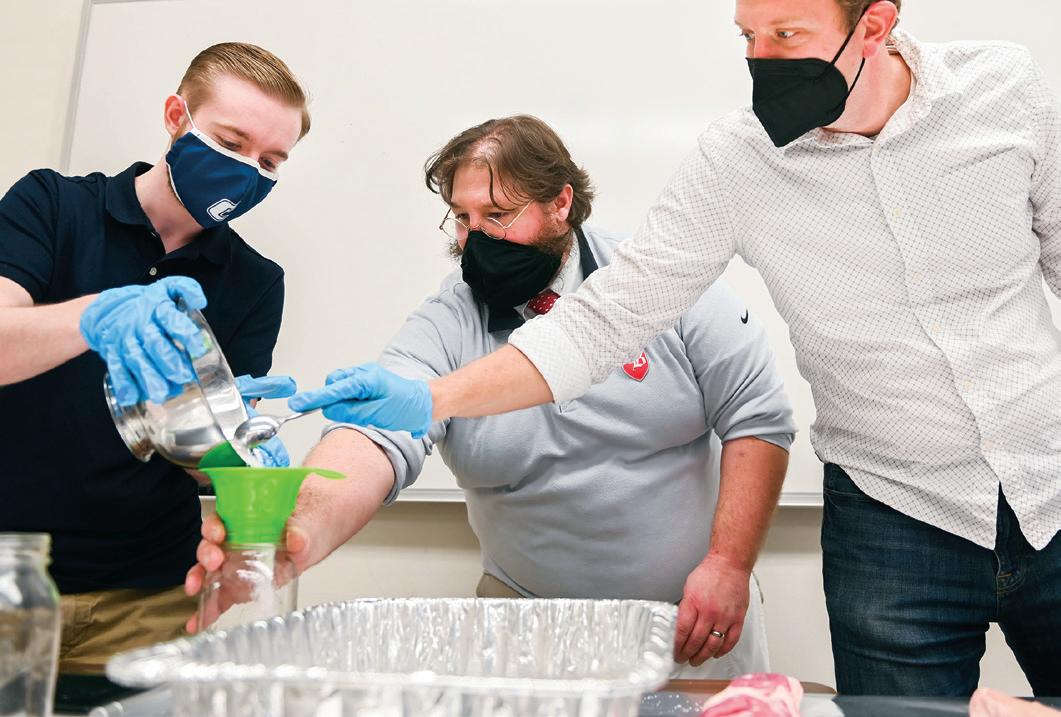
Curing meats involves a combination of salt, sugar, nitrite and/or nitrate for preservation, flavor and color. Scott learned about curing bacon as a UTC student, thanks to a book his brother-in-law sent him about charcuterie.
“I grew up eating country hams and lots of bacon, but I’d never done it myself. I wanted to give it a shot,” Scott says.
The guest instructor and students work together on five sections of the hog’s belly. One part is left alone; no spices at all. Scott calls it, “Our control chunk o’pork. When we cook it, it’s going to taste a lot like a really fatty pork chop.’”
Piece by piece, the other hog sections are seasoned. One with salt but left uncured. One with salt that will be cured. One with the mixture of salt, sugar and sodium nitrite will later be smoked with hickory and oak. One with the complete mix that will be smoked with applewood.
Once the spices and other ingredients are rubbed into the pork, it takes several weeks of refrigeration, turning the meat every two days, before it is ready for the smoking process. Once it is fully cured and cooked, Scott brings the bacon back to Johnson’s classroom for a taste testing.
“Next time somebody asks you, ‘Have you ever cured your own bacon,’ you can go, ‘Yes, I have,’” Scott says with a laugh. “That’s part of every humanities education, right?”
As one student says while tasting the different pieces, “I don’t know which one is which but that’s really good.”

23 UNIVERSITY OF TENNESSEE AT CHATTANOOGA COLLEGE OF ARTS AND SCIENCES UTC.EDU/CAS
Students learn how to make bacon in Mark Johnson’s Food and Southern History class.
STEAM Camp: Loads of Learning Disguised as Fun
Living creatures are discovered on Mars. Are they friendly or mean?
What do they look like?
Those are some of the questions a group of 21 middle school students had to answer during summer camp.
The goal of the camp, a collaboration between the Chattanooga Urban League and the Department of English at the University of Tennessee at Chattanooga, was to engage the students with lessons in Science, Technology, Engineering, Arts and Mathematics—known as STEAM— and introduce them to the idea that they might enjoy a career in one of the areas.
“We created a storyline,” says UTC Associate Professor of English Sarah Einstein, “and the campers used the elements of science, technology, engineering, arts and math to come to conclusions and resolve the issues that are laid out in the story.”
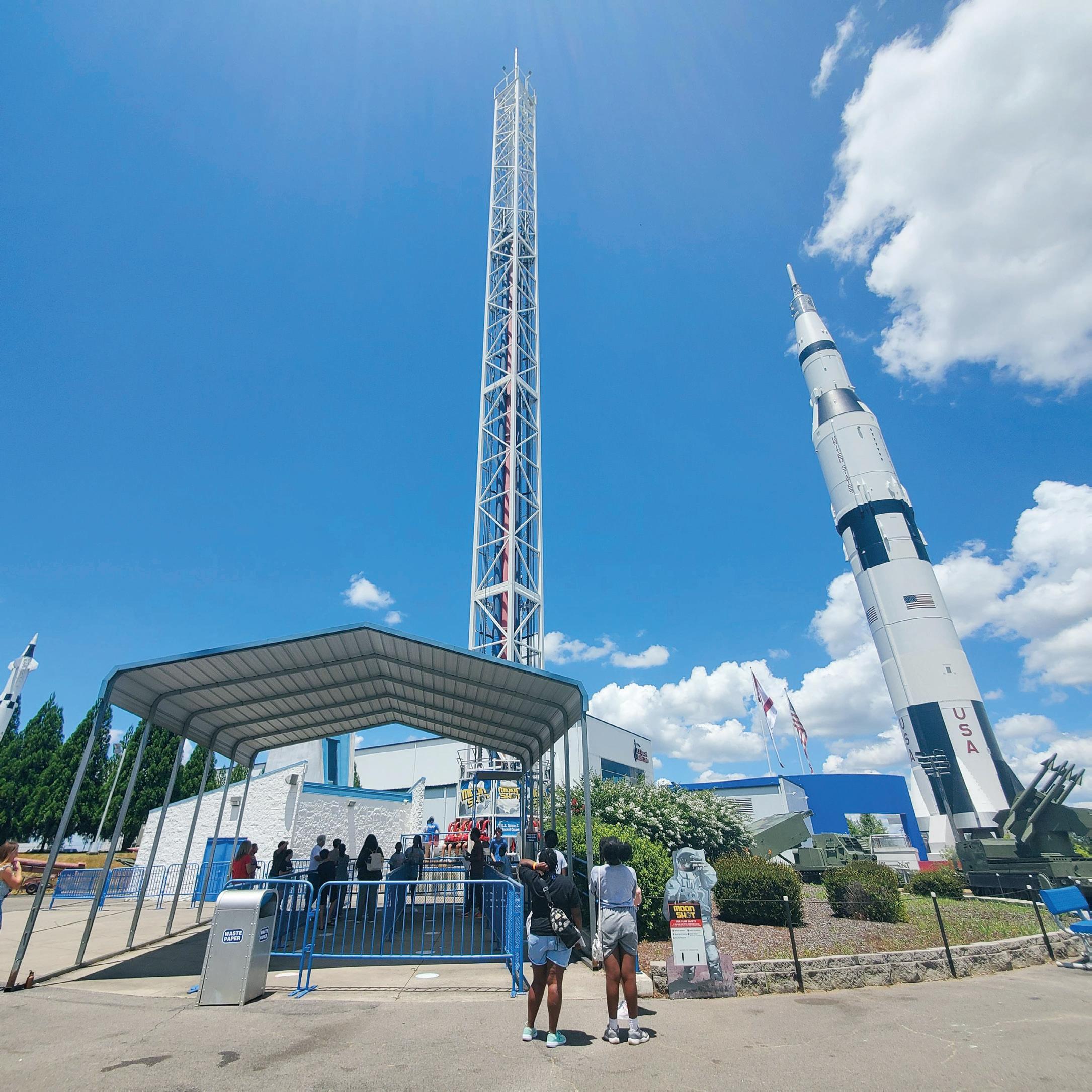
Einstein teaches a course in creative writing and another on writing storylines for video games, which was one of her jobs before coming to UTC.
The Martian storyline made students use each STEAM subject to finish the tale. Science helped hypothesize how Martians might look in the planet’s low gravity.
24 method SPRING 2023
The U.S. Space and Rocket Center in Huntsville, Alabama, is the largest space attraction in the world and displays more than 1,500 pieces from the U.S. Space program, including one of the Saturn V rockets used to send nine crewed flights to the moon.
Were they nice? If not, how would you build weapons to protect the human explorers? Technology came into play.
Engineering, technology and math helped build the rockets for the trip to Mars and determine how Martian homes and buildings are constructed. Arts helped students write the storyline to its conclusion.
The summer camp is part of an Urban League/UTC program that works with underserved middle-school students in the Hamilton County School System.


During the academic year, an afterschool program also focusing on STEAM is held at Howard Connect Academy.
The program began in the 2021–22 academic year and returned when schools started classes in August. In teaching the STEAM subjects, Einstein says the program uses software that has the ability to create video games.
“There’s several different projects, ranging from making a little music video that’s interactive to a narrative for a video game,” she explains.
To engage students’ attention, she says the key is to start with something they already enjoy.
“We work to make sure that whatever it is that interests the student, we meet them there,” Einstein says. “For some students, they will be really interested in coding because they enjoy coding. There’s this great logic to that. Other students just want to tell a really great story.”
Arielle Nord, pursuing a master’s degree in creative writing at UTC, has been one of the camp counselors since the afterschool program started. Watching the kids get excited about different ideas is one of the highlights for her.
“It was interesting to see how kids go about learning new things. I haven’t been a sixth grader in almost 10 years now, but it is nice to see them get into learning,” says Nord, who graduated from UTC in May 2022 with a bachelor’s degree in computer science.
One of the ultimate goals of the program, Einstein says, is to show students some careers incorporate the things they do for fun. It can be eye-opening for them.
“We would like for the students to know that, in fact, these sorts of careers are accessible to them and that they can succeed,” Einstein says. “There are a lot of jobs in these fields. They’re not all superstar jobs; there are production artists and that kind of stuff, but they’re good jobs.
“We feel like there’s not an awareness that these are jobs people can get and make a living.”
25 UNIVERSITY OF TENNESSEE AT CHATTANOOGA COLLEGE OF ARTS AND SCIENCES UTC.EDU/CAS
“We created a storyline, and the campers used the elements of science, technology, engineering, arts and math to come to conclusions and resolve the issues that are laid out in the story.”
—Associate Professor of English Sarah Einstein
And then there were three
“Just what can you do with a degree in philosophy?”
It’s a question Dennis Plaisted often hears from both students and their parents.

His answer: A lot.
“A philosophy degree teaches you to ask questions,” says Plaisted, associate head of the Department of Philosophy and Religion at the University of Tennessee at Chattanooga.
“Why do we do it that way? What arguments can you make to say that we should do it this way?
“That’s the kind of thing philosophy definitely gets you in the habit of doing, and that makes it more likely that you might see something new, see something different that other people didn’t see.”
To diversify the palette of philosophical possibilities for students—and their parents—Plaisted and Talia Welsh, UC Foundation professor in the department,
helped develop two new bachelor’s degree programs, one that blends philosophy with law and another with medicine.
“We thought there was a lot of need for those kinds of courses to be taught, just for them to become civic-minded people aware of things in the world,” Welsh says.
Medical ethics became a news topic in the recent past with COVID vaccine development and differing views on how extensively vaccination should be required, she says.
“How do you deal with a skeptical populace that doesn’t just accept the authority of medical-care practitioners?” she asks. “That’s really not a biology question or it’s not a science question, per se. There’s this ethical question: ‘Can I just not get vaccinated if I don’t want to?’”
The same is true of law, says Plaisted, who earned a law degree from the University of Southern California but has never practiced as an attorney.
“What we’ve done is to try to just take our existing curriculum and make it a little bit more focused on courses that would be relevant to somebody that wanted to study law or practice law,” he says.
“Lawyers make arguments and respond to arguments. That’s a big part of what they do, and philosophy is all about that, too. Making arguments for all these big questions and criticizing other people’s arguments, so it’s perfect preparation for that.”
Today, when Plaisted is intrigued by details of a particular court case making
26 method SPRING 2023
NEW DEGREES CONNECT PHILOSOPHY, LAW AND MEDICINE
news, he applies his knowledge of philosophy and law.
“They’ll make an argument and I’ll think, ‘Oh, that’s not right. That’s not how to interpret the constitution or there’s a gap in that reasoning.’
“I do that with the class. We look at actual reasoning from the courts and say, ‘Does this sound like a good argument to you?’ We talk about that in the class. It’s definitely something we do quite often.”
Philosophy addresses similar questions from a medical point of view, Welsh says.
“We know that med schools really like students with a diverse background. A lot of studies have shown that philosophy allows doctors to connect better with their patients, to respond to some of these kinds of challenges.”

Welsh says she served on an ethics committee for a company that treats clients with developmental disabilities that require long-term care. Ethical questions were common, she says.
“We had one where the family wanted the client to be able to eat what he wanted, but what he wanted was very unhealthy for him,” she recalls. “I remember there was a question that we talked a lot about: Can you restrict somebody’s bacon consumption? It seems like a weird question, but it actually was a real question for this person.”
Whether it’s a medical decision, a legal decision, or one that involves both, majoring in philosophy can equip graduates to better identify all the considerations involved.
“I think you need people who are able to think outside the box sometimes,” Plaisted says. “A lot of employers hire people that have degrees in philosophy, not just in law and medicine, but business and government jobs. They find that they’re usually maybe a little more creative in thinking of new solutions or seeing potential problems.”
27 UNIVERSITY OF TENNESSEE AT CHATTANOOGA COLLEGE OF ARTS AND SCIENCES UTC.EDU/CAS
“That’s the kind of thing philosophy definitely gets you in the habit of doing, and that makes it more likely that you might see something new, see something different that other people didn’t see.”
—Dennis Plaisted, associate head of the Department of Philosophy and Religion
engAGING Communities
to find resources for living with Alzheimer’s
The stories are unique in their details, but a common thread weaves through them.
“It seems that everyone has a story about how Alzheimer’s, dementia or other issues related to older adults has directly affected their lives,” says Jessica Freeman, assistant professor of communication at the University of Tennessee at Chattanooga.
She has heard dozens of personal stories from across the state as a member of engAGING Communities, a statewide initiative created in 2019 by Freeman and Kristi Wick, Vicki B. Gregg Chair of Gerontology and assistant professor in UTC School of Nursing.
Since receiving a $1.5-million grant in February from the Tennessee Department of Health, Freeman and Wick have set up workshops in several cities, including Chattanooga, Knoxville, Nashville and Memphis, to give information—and hope—to people dealing with dementia and Alzheimer’s, whether themselves or someone they love.
The grant is an effort between the state Department of Health and faith-based communities to build an Intrastate Network to Deliver Equity and Eliminate Disparities (INDEED).
INDEED-funded workshops in 2022 have been attended by 382 people. In each one, the information presented has resulted in wide-eyed amazement from many participants. Questions are non-stop. What are they going to do when symptoms are unmistakable? Even more frightening, what will they do when he is totally incapable of caring for himself?
“We’ve received so much feedback from the workshop attendees in various regions across the state, indicating that they’d like more training and education,” Freeman says.
The workshops are long, but they could last far longer, Wick says.
“We have this five-hour workshop and probably could have gone 12 hours,” she says. “There’s so much fear wrapped up in it. The fear of the unknown, of not understanding the course of the disease, not knowing where to get assistance and help.”
Working with faith-based organizations is an effective way to reach those who might not trust other sources.
“Research tells us that, in Tennessee, faith-based and religious organizations play a major role in individuals’ lives. This includes shaping their attitudes, beliefs and behaviors, including those surrounding health,” Freeman says.
“We also know that, through COVID-19, many of these organizations stepped up and played an instrumental part in addressing this health crisis.”
“Given this, we are leveraging the power of these organizations to help connect community members in need to education, outreach and support for health issues surrounding older adults.”
In Tennessee, Clay, Overton and Hancock counties in Northeast Tennessee and Lauderdale, Crockett, Gibson and Carroll counties in West Tennessee have at least 12% or more of residents diagnosed with dementia or Alzheimer’s, according to data from the state Department of Health.
Along with faith-based and religious groups, engAGING Communities also is reaching out to elderly-care advocacy groups, giving them information and resources in regions across Tennessee. It’s a key step in helping people understand the details of dementia and Alzheimer’s and where to go to learn more.
“There are so many different organizations around the state that are already doing amazing work to support older adults and their caregivers,” Freeman says. “Part of our key mission is to offer a platform for these organizations to more easily connect with each other and those citizens that need them the most.”
28 method SPRING 2023
“We’ve received so much feedback from the workshop attendees in various regions across the state, indicating that they’d like more training and education,”

SKIES TAKING TO THE
Picture it.
You’re a professor at the University of Tennessee at Chattanooga and a distraught student walks up and says, “I can’t afford college anymore. I have to drop out.”
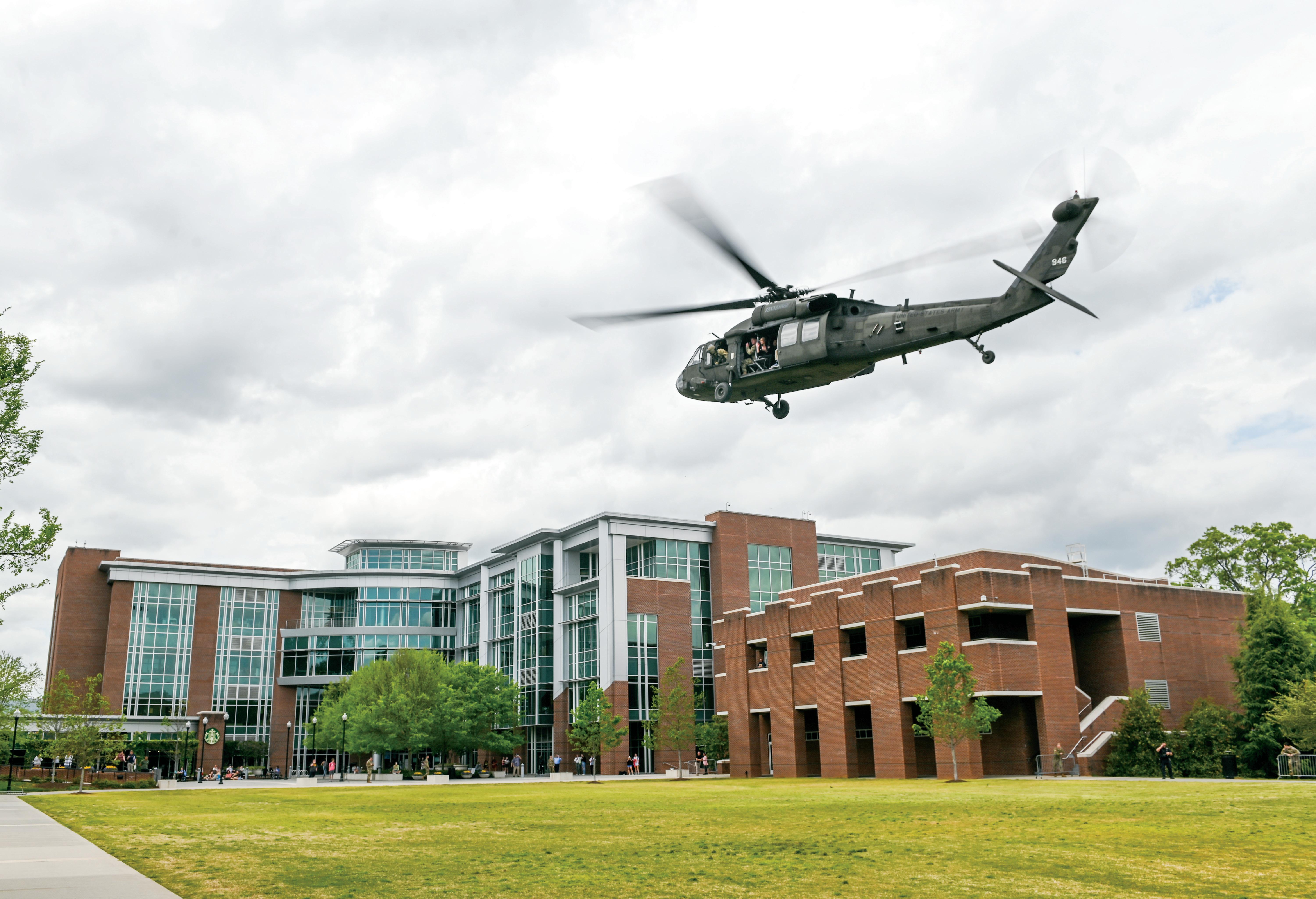
30 method SPRING 2023

31 UNIVERSITY OF TENNESSEE AT CHATTANOOGA COLLEGE OF ARTS AND SCIENCES UTC.EDU/CAS
You feel terrible for the student and are not sure what to say. Then you remember an on-campus luncheon you attended a few months ago.
There, you heard about the Flight Educator Program as you chatted with cadets in the Tennessee National Guard. What you learned gives you an idea for the student.
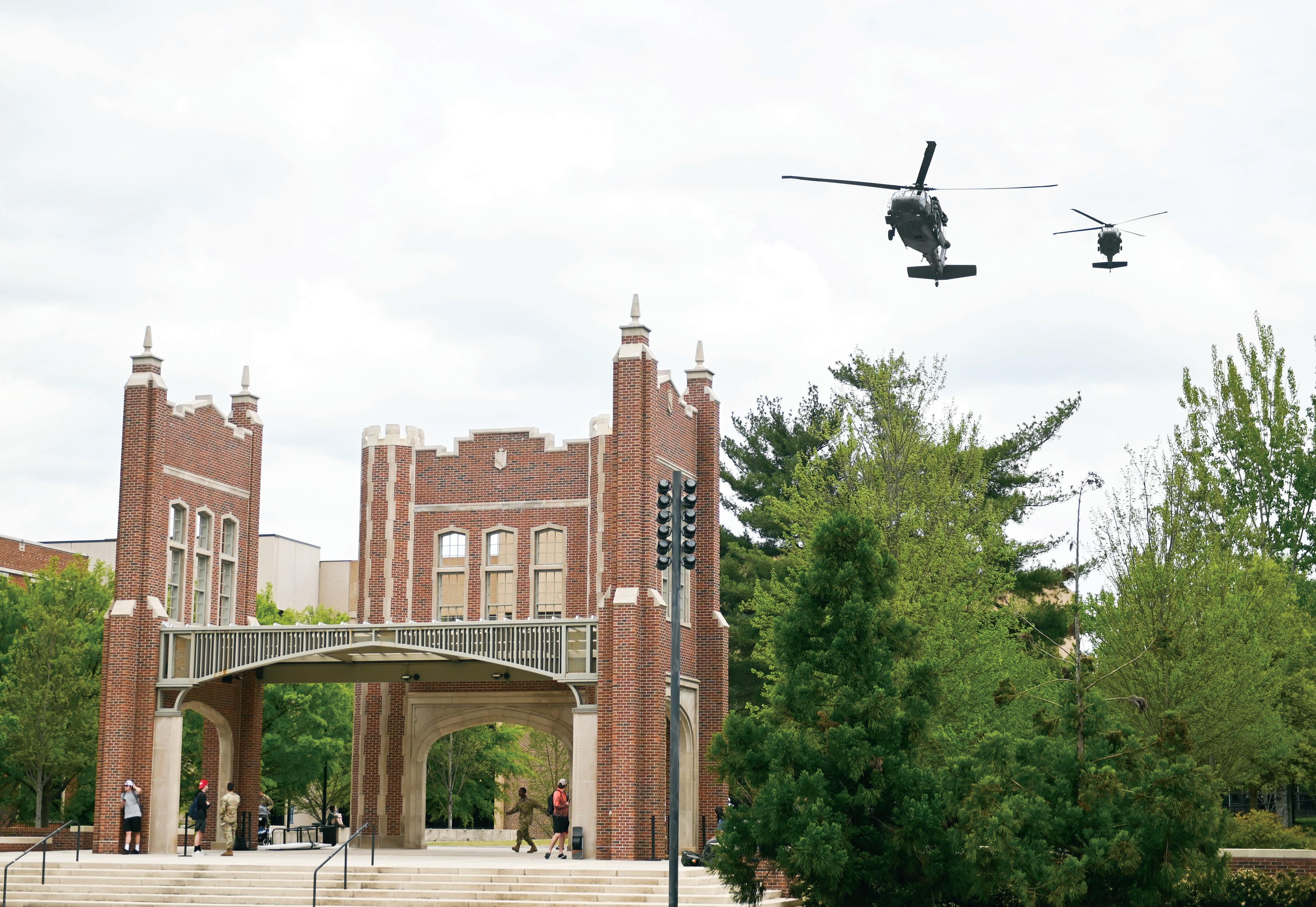

“Have you thought about the National Guard? They pay for your school. Maybe this is an option for you.”
That’s one of the reasons Military Science Instructor Jacqueline Hogan reactivated the Flight Educator Program in April 2022, several years after it was last held.
“It’s designed to allow the staff, the faculty, the administrators, the chance to participate in something that an ROTC cadet would participate in the future,” says Hogan.
One of those possible futures is joining the
National Guard and getting tuition paid in full.
“So, if you have a student in your class or that you know looking for opportunities to get their tuition covered or to serve in the military in whatever capacity, here’s one option for them,” says Hogan, who has served in the National
32 method SPRING 2023
Military Science Instructor Jacqueline Hogan
“The National Guard offers a program here on campus where they don’t even have to attend basic combat training.”
Two Army Black Hawk helicopters, piloted by members of the Tennessee Army National Guard, came to UTC to take ROTC students, faculty, staff and administrators over campus, downtown Chattanooga and nearby surrounding areas.
Guard for eight years and attained the rank of staff sergeant.
For many, the idea of being in the National Guard means that once you sign on the dotted line, you’re immediately shipped off to boot camp.
“They think military. They think, ‘Well, I have to go away.’ They don’t realize that the National Guard offers a program here on campus where they don’t even have to attend basic combat training,” she says. “They use the ROTC as their training, so they never have to miss any school, so it’s a huge benefit for those who don’t want to take any time off from school.
“For those who do want to take time off, the National Guard also offers the enlisted route to go through the basic combat training and come back to school.”

During the Flight Instructor Program luncheon earlier this year, an additional enticement was
added. A convoy of loud, imposing and impressive Black Hawk helicopters landed on Chamberlain Field. Students, staff and faculty had the chance to climb onboard and take a 10-minute flight around Chattanooga with members of the National Guard.
“They got a chance to speak with the pilots and the crew chiefs and the medics or whoever might be a part of the crew that day,” Hogan explains.
“In their future endeavors, they might think, ‘Hey, I might want to be in branch aviation’ or ‘I might want to become a pilot at some point in my life.’ They got the opportunity to have those conversations.”
Don’t forget another piece of bait.
“There’s nothing like bringing a Black Hawk helicopter to land that really gives people’s attention and gets them excited about the military,” Hogan says.
33 UNIVERSITY OF TENNESSEE AT CHATTANOOGA COLLEGE OF ARTS AND SCIENCES UTC.EDU/CAS
Math Major = Career Multiplier
Lakmali Weerasena uses her math skills to protect native wildlife and plants from invasive species.

A UC Foundation associate professor in the Department of Math at the University of Tennessee at Chattanooga, she received a $249,860 grant from the National Science Foundation to fund research at Reflection Riding Arboretum and Nature Center at the base of Lookout Mountain.
Her project uses math to predict the growth rate and direction of privet, an extremely invasive plant. The goal is to find ways to protect native plants.
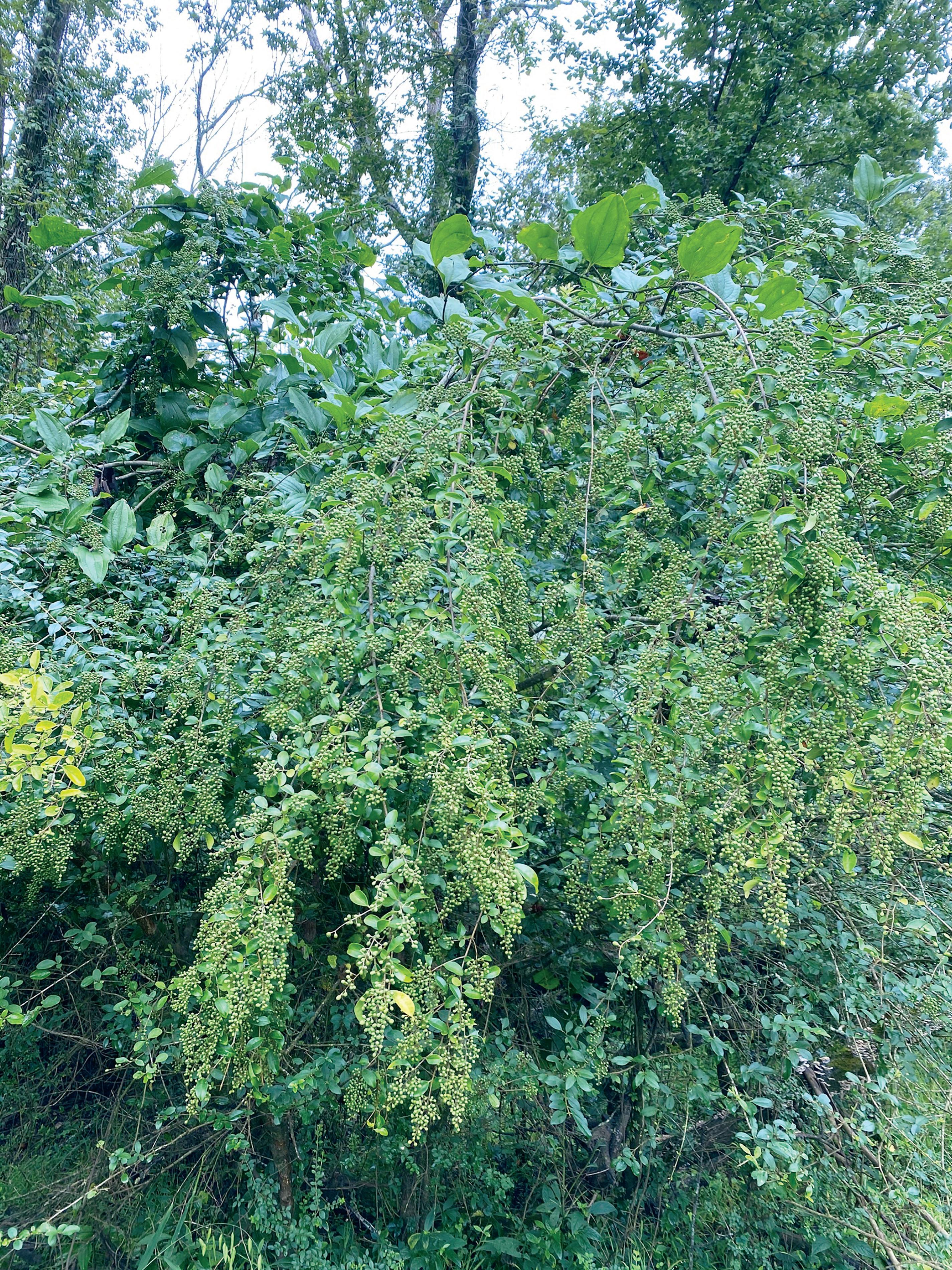
“Conservation biologists and wildlife managers are challenged with designing protected area networks optimized for biodiversity conservation,” Weerasena says.
“Although protecting extensive wildlands with the entire assemblage of native species in large population sizes is the ecologically prudent solution, such goals are challenging to attain due to limitations in funds, monitoring capabilities and other resources.”
A degree in math is not just a one-way street to careers in accounting, teaching, banking or finance. It’s a superhighway to others.
“One of the inaccurate stereotypes of math majors is that they either teach
34 method SPRING 2023
high school, become actuaries or go to graduate school,” says Dr. Christopher Cox, head of the Department of Math.
“Clearly, those are all worthwhile pursuits, but there are many other types of employment that a math degree qualifies one for, especially if their studies include some courses in a related field such as computer science. For example, math majors get hired to be statisticians, information security analysts and data scientists.”

Cox is working with UC Foundation Professor Dr. Boris Belinskiy and Anthropology Assistant Professor Morgan Smith on a project using sonar to locate the remains of indigenous archaeological sites at the bottom of the Tennessee River, Harrison Bay and other local waterways.
Math equations are being developed to predict how sonar will identify tools, dwellings, utensils and other artifacts depending on such factors as the depth of the water, what type of sediment is covering the artifact and what material was used to create it.
Math also has been a staple in medical research throughout history. In his iconic, 15th-century Vitruvian Man drawing, Leonardo da Vinci used math to reflect what he believed were the ideal proportions of the human body. Thomas Malthus published his groundbreaking research into human population growth in 1798.
Modern medicine uses math extensively, including research conducted by UTC professors and students.
Jin Wang, professor and Unum Chair of Excellence in Applied Mathematics, and his Ph.D. students are trying to better understand how COVID-19 infections change over time.
Assistant Professor Xiunan Wang is tracing the factors that influence infection rates of COVID-19 and HIV/AIDS.
Associate Professor Lani Gao is helping physicians and clinicians at Erlanger Hospital and the UT College of Medicine with their medical research.
Cox, Belinskiy and Jamie Cummins, a Ph.D. student in applied mathematics, are using equations to try to prevent arrhythmia.
Since summer 2021, they have been working with South Carolina-based cardiologist Dr. Don Rubenstein, who specializes in tracing the pathways of electrical currents that travel through the heart.
To treat arrythmia, Cummins explains, electrodes are placed in the heart to pinpoint where the problematic electrical charge starts. When one is located, the specific area of the heart is burned or frozen—a process known as ablation—by a tiny electrode to kill the cells creating the problem.
But the process is basically whack-amole, Cummins says. You treat one spot, and another pops up.
“With our mathematical model, hopefully, that would increase the chance of pinpointing where these spiral rotors are,” he says, “which would ultimately result in a more successful surgery.”
35 UNIVERSITY OF TENNESSEE AT CHATTANOOGA COLLEGE OF ARTS AND SCIENCES UTC.EDU/CAS
Dr. Christopher Cox, Head of the Department of Math
“ One of the inaccurate stereotypes of math majors is that they either teach high school, become actuaries or go to graduate school.”
Produce-ing confidence
ENVIRONMENTAL STUDIES COURSE
TOUCHES ON MENTAL HEALTH, NATURAL SCIENCE AND LAW
Soil in Chattanooga’s Alton Park was contaminated decades ago by lead residue from its industrial past. Under a federal U.S. Environmental Protection Agency order of 2018, contaminated soil was removed and replaced with fresh.
In 2019, a community garden was started in Alton Park, a chance for neighborhood residents to get outside, plant vegetables, meet each other and make friends. Still, some residents were skeptical about the garden and the safety of eating its produce.

Catherine Meeks Quinlan knew Alton Park would be an excellent place to take students in her “Intro to Environmental Studies” class.
“It’s been a challenge within that community to even convince people that the food they’re growing there is safe to eat because of the legacy of toxic chemicals in the soil,” says Quinlan, associate lecturer in the Department of English at the University of Tennessee at Chattanooga
Convincing residents has been an ongoing task that touches on several areas. Getting the word out that the food is safe. Showing how working in nature is good for a person’s state of mind. Learning how to grow healthy plants. Understanding the federal and state laws for removing lead.
36 method SPRING 2023
Communication. Mental health. Natural science. Environmental law.
Each of those and others falls under the umbrella of environmental studies—a UTC minor launched in fall semester 2022. The program was conceived, designed and implemented by Quinlan, Lucy Schultz, associate lecturer in the UTC Department of Philosophy and Religion; and Jennifer Boyd, senior associate head of the Department of Biology, Geology and Environmental Science.
An interdisciplinary program, environmental studies encompasses many fields of study, Schultz explains. How humans affect the environment and how to reduce the damage caused. Philosophies on the food distribution systems and who’s helped and who’s left out. Depicting the environment through artwork. How to write articles and research papers about environmental issues.
“It’s not just doing biology,” Schultz says. “We’re looking at the way the environment interfaces with human values and society from all of these different disciplinary vantage points.”
UTC students majoring in philosophy, business administration, health and human performance, psychology, English and geology have declared environmental studies as their minor. Whatever major a student is pursuing, environmental studies can provide new ideas and ways to tackle the issue.
“We are looking at the way different lenses can be used to understand environmental problems,” Quinlan says.
“We’re looking through the lens of the humanities, the social sciences, the behav-
ioral sciences, the natural sciences with a basic understanding that environmental problems and environmental issues are rooted in a social context. It’s understanding that the science of an environmental issue is not necessarily going to solve the problem. There’s lots of other pieces that are involved.”
Chattanooga, itself, is a vital part of the program.
“One hundred percent,” Schultz says. “We envision this program to be rooted in Chattanooga. We really want to capitalize on the local resources as we develop this program.
“One of my interests is experiential learning and service learning,” she continues, “and getting students out of the classroom and developing community partnerships where students have the opportunity to see the way that the things we’re studying are actually taking shape in the real world around them.”
The concepts and skills learned in an environmental studies program in Chattanooga can work in any region, be it the green, forested area of the Appalachians to the dry, desert-like conditions in the Southwestern United States, she says.


Quinlan says the environment is a major issue for the current generation of students and young adults.
“It’s the issue of their generation in a lot of ways,” she says, “and it can lead to, I think, feelings of hopelessness and fear and worry.”
One of the goals of the environmental studies minor is to show students that they can make a difference whatever degree they’re pursuing, she says.
“If you’re not somebody who wants to go into a hardscience field or do that type of work, there is a great need for a lot of other skill sets to be applied in a lot of different contexts.”
37 UNIVERSITY OF TENNESSEE AT CHATTANOOGA COLLEGE OF ARTS AND SCIENCES UTC.EDU/CAS
Students in the Nature and Society: Introduction to Environmental Studies class at the Bethlehem Center garden.
“We’re looking at the way the environment interfaces with human values and society from all of these different disciplinary vantage points.”
Lucy Schultz, associate lecturer in the UTC Department of Philosophy and Religion
Nickel for His Thoughts
When you brush your teeth, thank Murray Raney. If you play guitar, thank Murray Raney.
As you sit on the driver’s seat of your car, thank Murray Raney, a prolific inventor and product of Chattanooga.
In his home laboratory on Oak Street in 1926, Raney created a nickel-aluminum alloy that is today known as Raney nickel. It is essential in making nylon, which is used in toothbrush bristles, guitar strings, backpacks and, of course, women’s hosiery. Many plastic components in cars also use nylon for its strength and ability to be cast in many shapes, including polyurethane foam in auto seats.
Raney nickel was granted a patent by the federal government in 1927 and in 2022 was honored for its invaluable contributions to the world with the American Chemical Society’s National Historic Chemical Landmark designation, only the third time this stature has been awarded to a Tennessee-based invention.
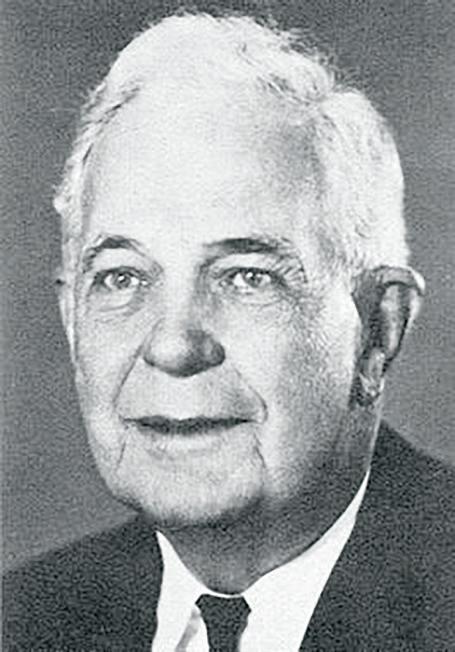
“Every day we use or come into contact with materials made from chemicals whose preparation involved the use of Raney nickel,” says Robert Mebane, a chemistry professor at UTC from 1983 until 2018. Mebane wrote the proposal for Raney nickel’s selection as a historic landmark by the American Chemical Society and chaired the committee behind the effort.
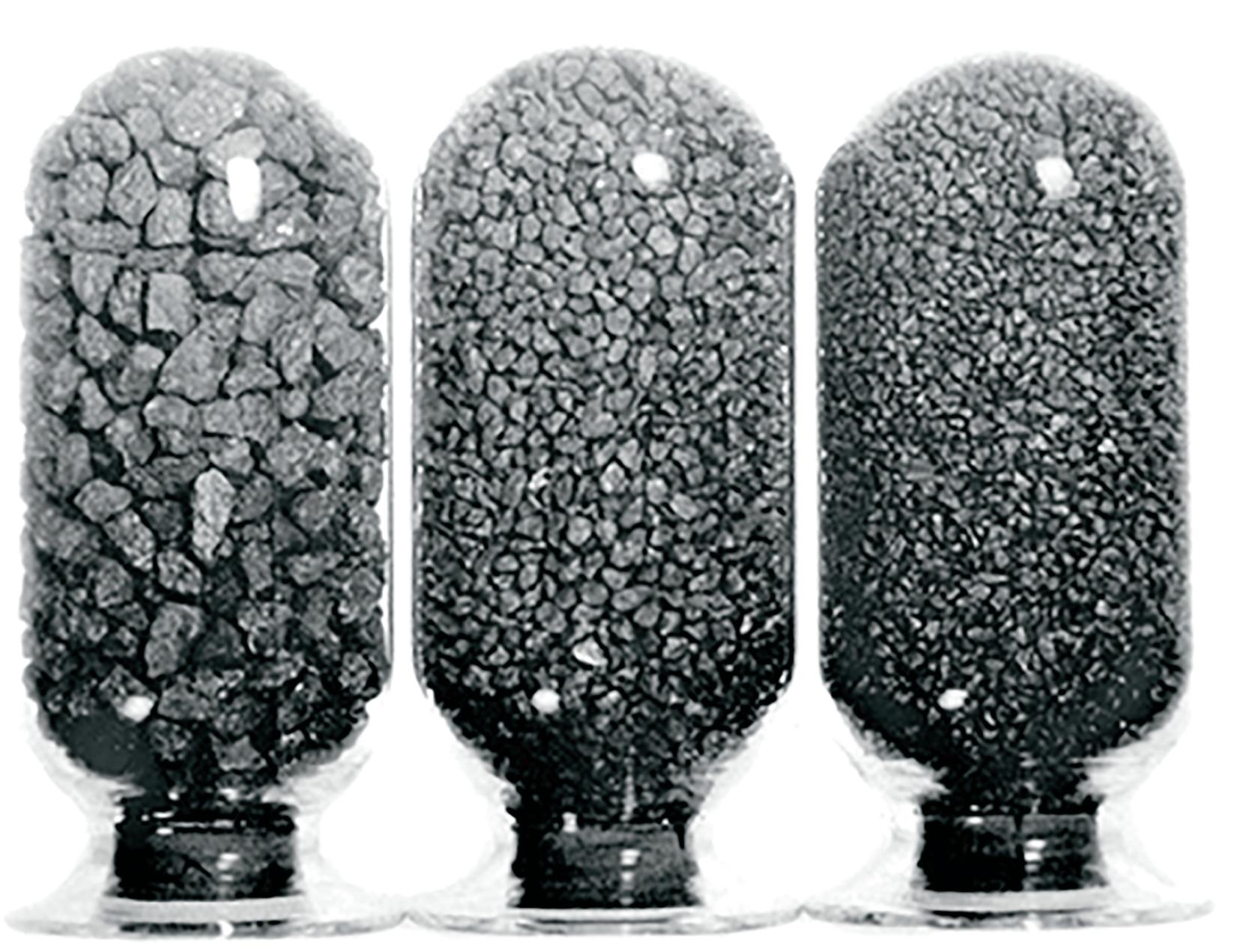
Raney nickel—also known as spongy nickel—originally was developed to convert cottonseed oil and vegetable oils into cooking shortening. It also is used in a process to create the sweetener sorbitol.
“Many toothpastes and mouthwashes use sorbitol as a sweetening agent because we
38 method SPRING 2023
like the taste of sweet and, secondly, sorbitol does not promote oral bacteria growth,” Mebane says.
Raney’s Oak Street lab was in Fort Wood, adjacent to UTC, and may have been on property that’s now part of the University campus, says Keenan Dungey, head of the Department of Chemistry and Physics. County records don’t show the exact address of the lab, so confirming whether it was on UTC property isn’t possible, Dungey says.
Irvine Grote, former head of the Department of Chemistry and namesake of Grote Hall on campus, was a personal friend of Raney. Like his friend, Grote
was an inventor—of dihydroxy aluminum sodium carbonate, resulting in Rolaids antacid tablets—whose discovery also impacts society to this day.
Raney’s original source for his nickel-aluminum alloy was a truck crankcase. In 1963, he sold his Raney Catalyst Co., Inc. to W.R. Grace and Co., which continues to produce Raney nickel today at its manufacturing plant in Chattanooga.
In 1989, the Grace company established the Murray Raney Scholarship at UTC. To date, it has given more than $57,000 to chemistry majors pursuing graduate studies or a career in the chemical industry.

39 UNIVERSITY OF TENNESSEE AT CHATTANOOGA COLLEGE OF ARTS AND SCIENCES UTC.EDU/CAS
Opposite left, containers of Raney nickel. Photo courtesy of the American Chemical Society. Opposite right, portrait of Murray Raney. Below, an illustration of the equipment and procedure required for processing Raney nickel were simple and didn’t need highly technical supervision: ACS,Ind.&Eng.Chem.,Vol.32,No.9,Sept.1940,1199.
FACULTY PUBLICATIONS
Edward Brudney, assistant professor in the Department of History, and James S. Damico and Loren D. Lybarger, “Commemorative Literacies and Labors of Justice.” Routledge.

Mark A. Johnson, associate lecturer in the Department of History, “Rough Tactics: Black Performance in Political Spectacles, 1877-1932.” University Press of Mississippi.

Ahmet Kule, associate professor in the Department of Social, Cultural and Justice Studies, and Sanja Kutnjak Ivkovic, Jon Maskaly and Maria Maki Haberfeld, “Police Code of Silence in Times of Change.” Springer International.

Jessica McCarthy, associate lecturer in the Department of English, and Charles A. Johanningsmeier, editors, “Reimagining Realism: A New Anthology of Late Nineteenthand Early Twentieth-Century Short Fiction.” Ohio State University Press.

Marcia Noe, professor in the Department of English and director of the Women, Gender and Sexuality Studies program, “Three Midwestern Playwrights: How Floyd Dell, George Cram Cook, and Susan Glaspell Transformed
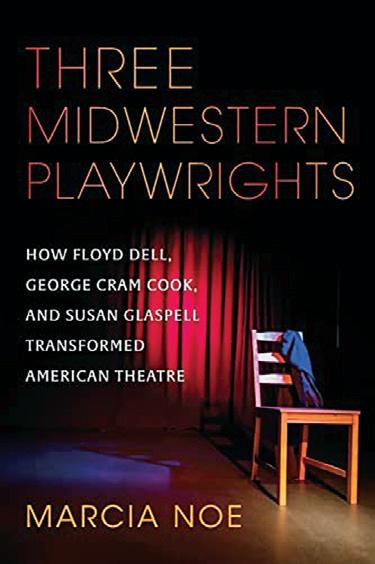
Andrew O’Brien, professor in the Department of Art, “Drift Alignment.” Skylark.
published.
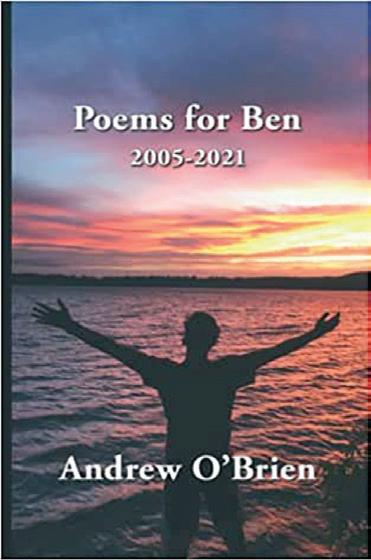

Irven M. Resnik, professor and Chair of Excellence in the Department of Philosophy and Religion, and Kenneth F. Kitchell, Jr., “Albertus Magnus and the World of Nature.” Reaktion Books.

40 method SPRING 2023
Brian Ribeiro, UC Foundation and North Callahan Distinguished Professor in the Department of Philosophy and Religion, “Sextus, Montaigne, Hume: Pyrrhonizers.” Brill.

Annie Tracy Samuel, associate professor in the Department of History, “The Unfinished History of the Iran-Iraq War: Faith, Firepower, and Iran’s Revolutionary Guards.” Cambridge University Press.

Henry G. Spratt, Jr., professor in the Department of Biology, Geology, and Environmental Science, “Bioremediation— Cleaning Toxic Wastes with a Little Help From Nature.” Kendall Hunt.
Carl Springer, SunTrust Chair of Excellence in the Humanities in the Department of Modern and Classical Languages and Literatures, “Luther’s Rome, Rome’s Luther: How the City Shaped the Reformer.” Fortress Press.

Talia L. Welsh, UTAA Distinguished Service professor and UC Foundation professor in the Department of Philosophy and Religion, “Feminist Existentialism, Biopolitics, and Critical Phenomenology in a Time of Bad Health.” Routledge.
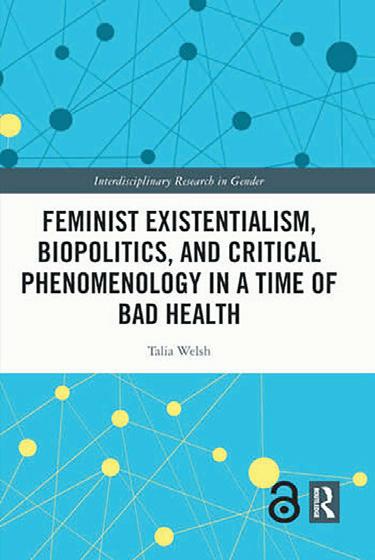
Talia L. Welsh, UTAA Distinguished Service professor and UC Foundation professor in the Department of Philosophy and Religion, and Susan Bredlau, editors, “Normality, Abnormality, and Pathology in MerleauPonty.” State University of New York Press.
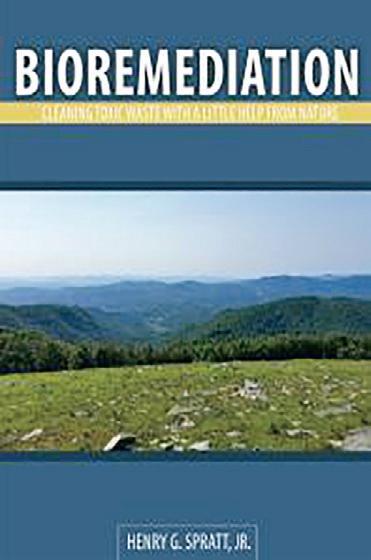
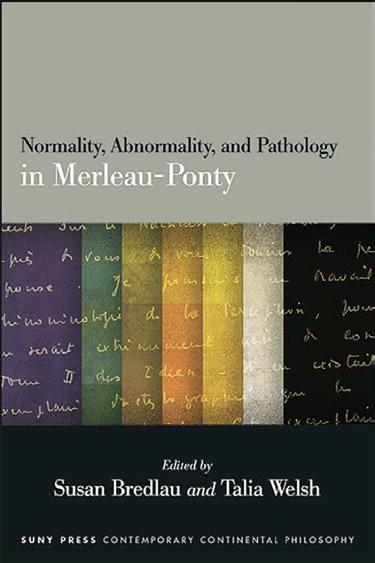
Jonathan Yeager, Leroy A. Martin Distinguished Professor of Religious Studies in the Department of Philosophy and Religion, editor, “The Oxford Handbook of Early Evangelicalism.” Oxford University Press.

41 UNIVERSITY OF TENNESSEE AT CHATTANOOGA COLLEGE OF ARTS AND SCIENCES UTC.EDU/CAS
Faculty lead students in research abroad
These faculty members led study-abroad trips as part of their course curriculum. Also included are faculty-led international research trips.
Karen Casebier (Department of Modern and Classical Languages and Literatures): France
Justin Colvin (Department of Modern and Classical Languages and Literatures): Italy
Sarah Farnsley and Hope Klug (Department of Biology, Geology and Environmental Science): Finland
Jose-Luis Gastañaga (Department of Modern and Classical Languages and Literatures): Spain
Loren Hayes (Department of Biology, Geology, and Environmental Science): Chile
Julie Madden and Alexandra Zelin (Department of Psychology): England, Germany and Austria
John Swanson and Carey McCormack (Department of History): Germany
42 method SPRING 2023 study abroad
Pictured opposite, studentsubmitted photos of various trips
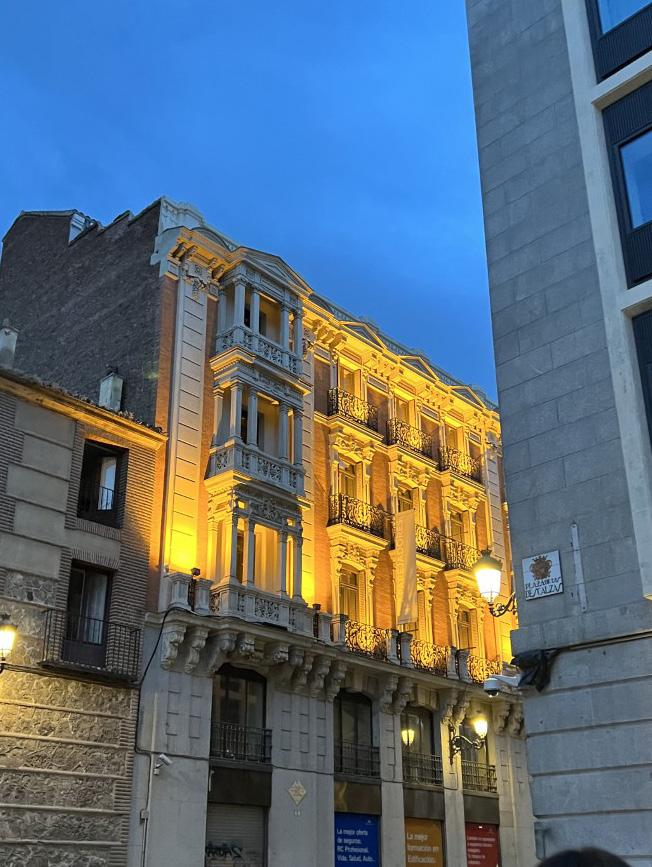
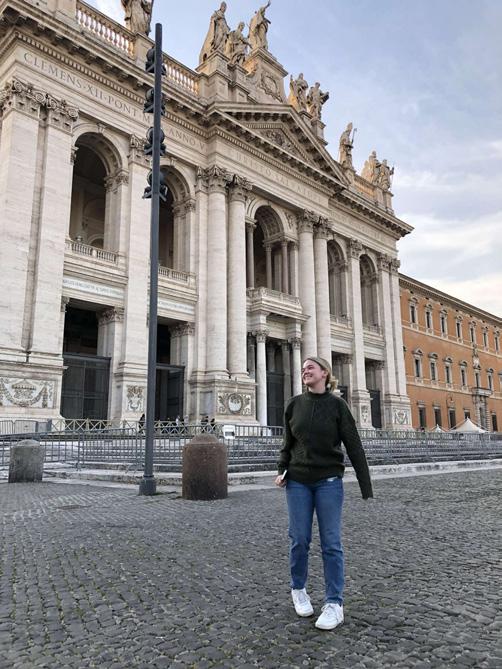


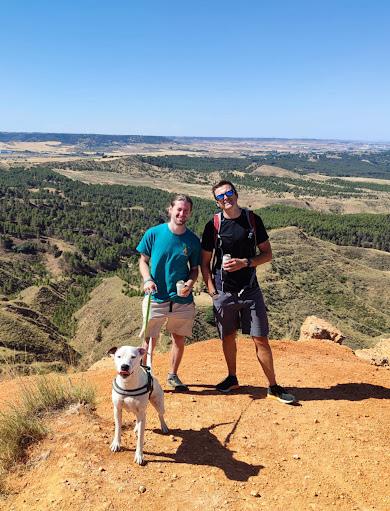
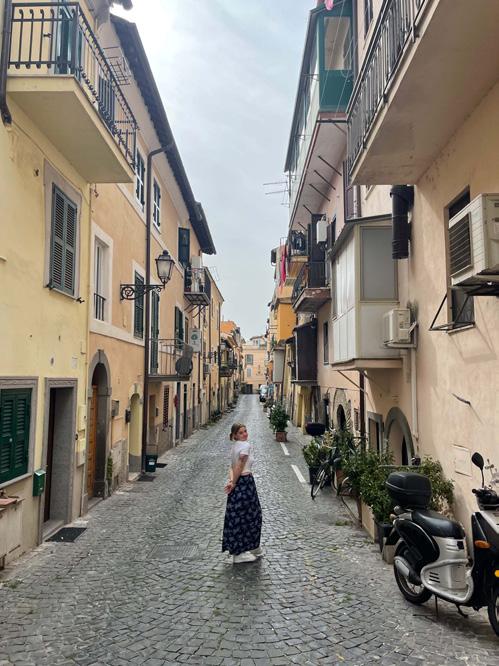
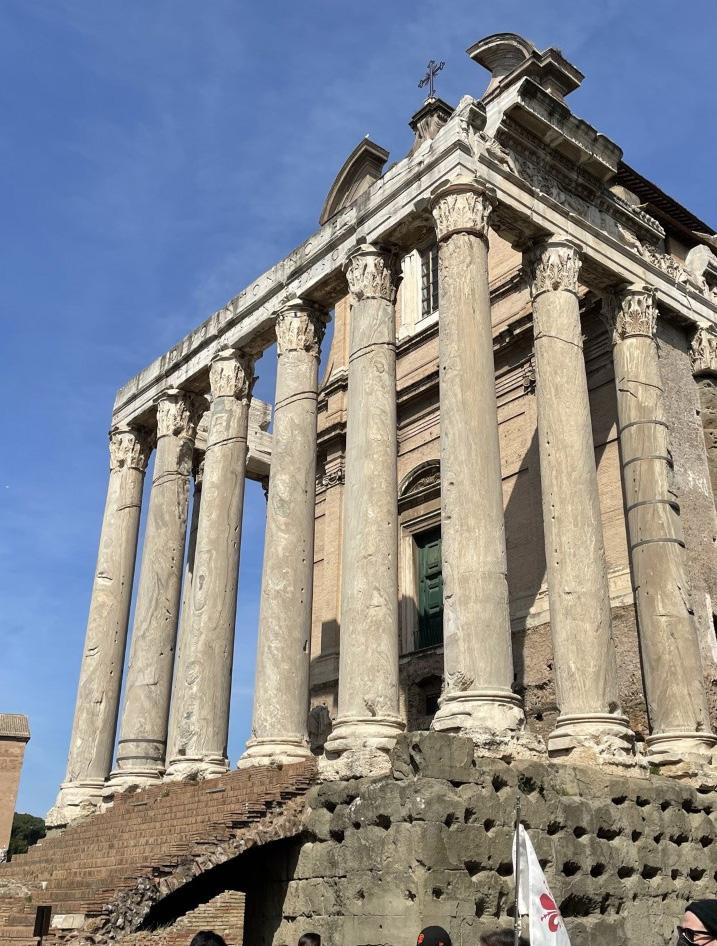
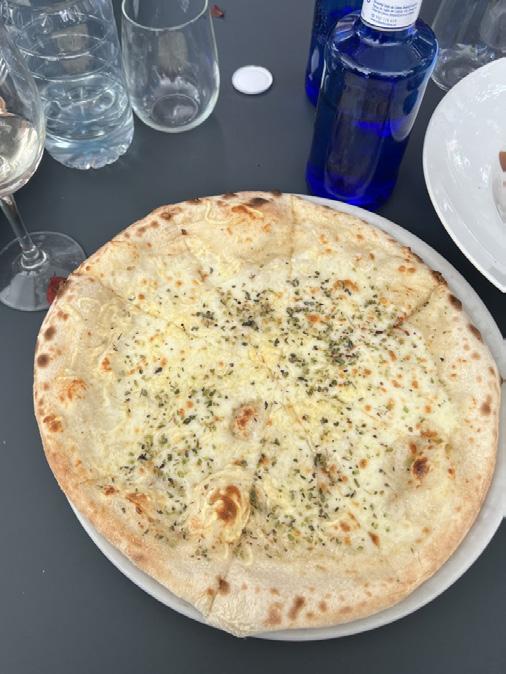
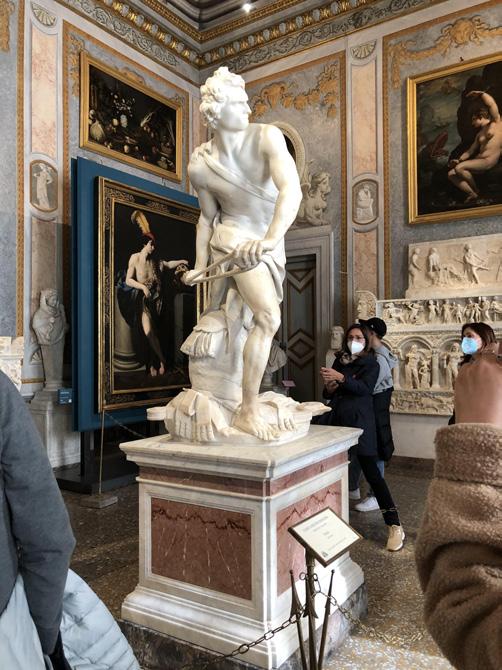
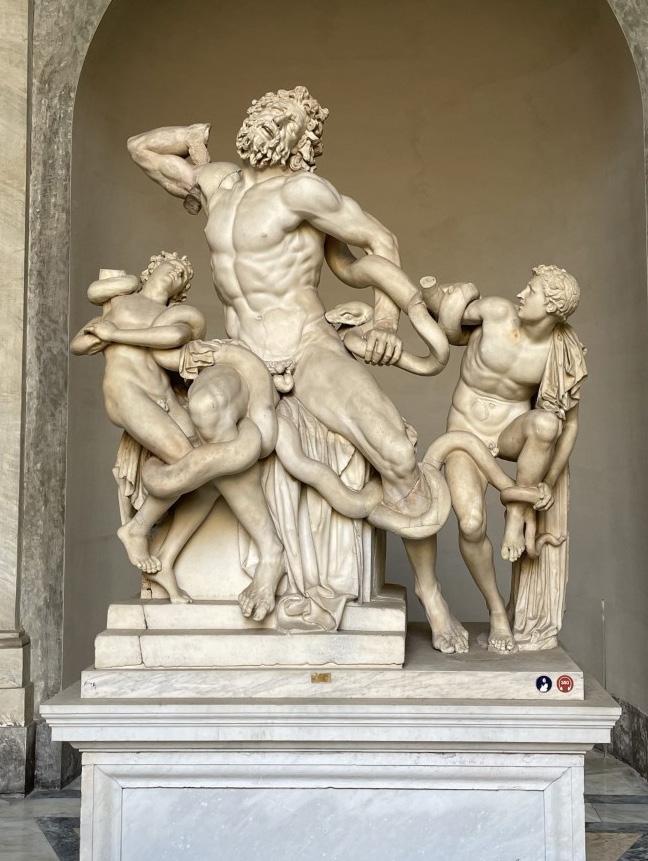
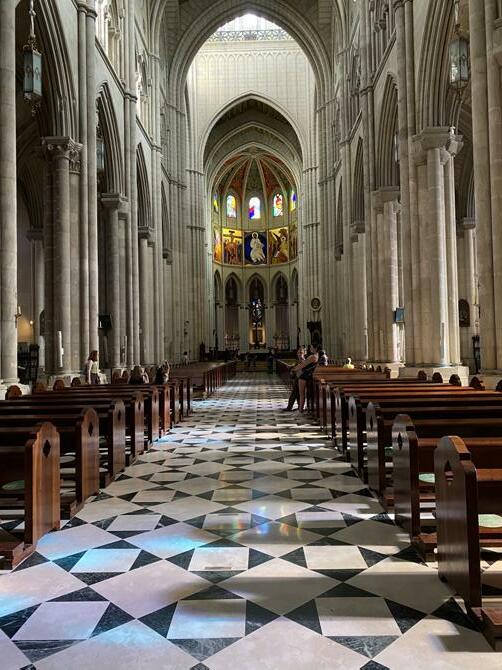
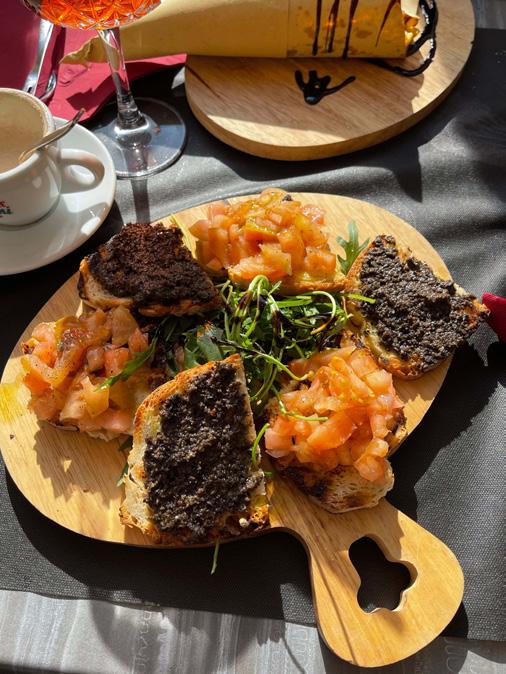
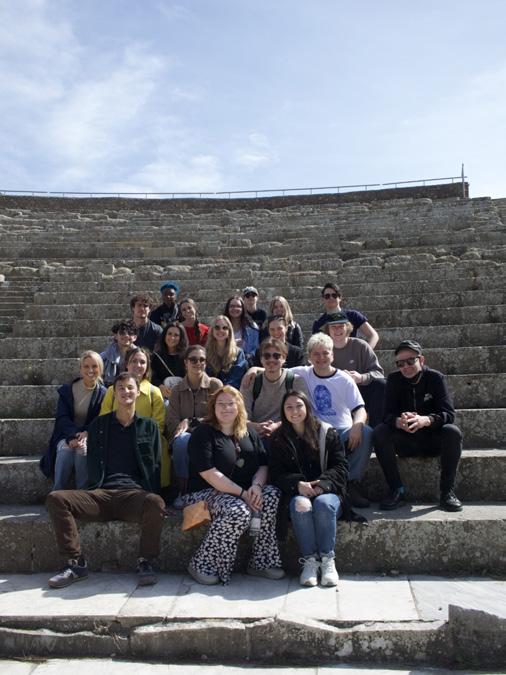
43 UNIVERSITY OF TENNESSEE AT CHATTANOOGA COLLEGE OF ARTS AND SCIENCES UTC.EDU/CAS
Cunningham Gift Supports UTC Students
James Vann Cunningham’s donation to the Department of Social, Cultural, and Justice Studies is already helping students at the University of Tennessee at Chattanooga. His pledge created the Vann Cunningham Scholarship Fund in Anthropology and the annual Internship in Anthropology and Cultural Archaeology.
Cunningham graduated from UTC in 1974 with a bachelor’s degree in sociology and anthropology, followed by a master’s degree in planning from the University of Tennessee, Knoxville.
A resident of Arlington, Texas, Cunningham retired in 2016 as head of economic development for BNSF Railway Co., one of the largest North American rail networks. He created and led programs to encourage rail-oriented industries to build or expand facilities on BNSF routes, also developing railserved industrial, intermodal and transload facilities throughout BNSF’s rail network.
UTC students are already benefiting from Cunningham’s gift. This year, his internship facilitated the hiring of five anthropology students to work alongside their faculty advisors, completing more than 100 internship hours. The Vann Cunningham Scholarship further has supported six firstgeneration students.
In recognition of his generosity, the University is naming its anthropology teaching lab the Vann Cunningham Anthropology Teaching Lab.
44 method SPRING 2023

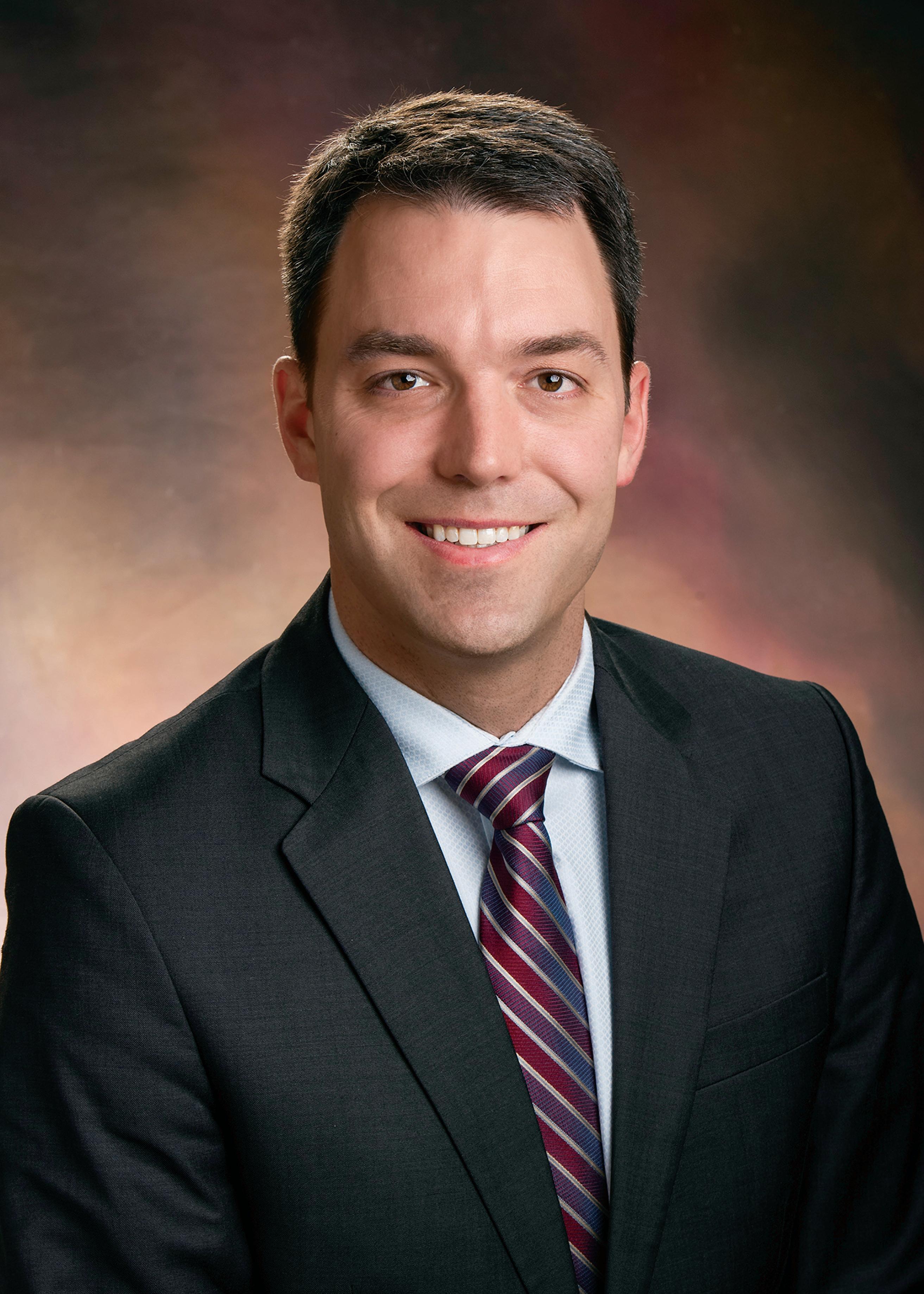
46 method SPRING 2023
Alum dives deep into medical data
If you’re a student who wants to attend medical school, here’s the deal: It’s not like you think it is.
That’s a point Dr. Charles Phillips wanted to get across when he sat down with a group of Honors College students at the University of Tennessee at Chattanooga. A 2007 UTC graduate with a bachelor’s degree in biology, he focused on the topic: “What it Takes to Become a Doctor at a Major Academic Medical Center.”
“One of the things I was hoping to convey to the students was, ‘Do you know what you’re getting into?’” says Phillips, a practicing physician in pediatric oncology.
He earned a medical degree from Vanderbilt University School of Medicine. He now practices medicine and teaches at the University of Pennsylvania in Philadelphia.
During his conversation with the UTC students, which included a Q&A session, he talked about his path to becoming a doctor, a journey that began with his original goal of being a clinical researcher.
Frustration at not being able to find the data he needed for some research projects led to master’s degrees in health policy research and biomedical informatics. A selfdescribed “data junkie,” he dives deeply into the findings of medical and health-related research with the hope of finding new and more efficient treatments for diseases.
At UTC, he discussed the ups and downs of his career but said he didn’t want to make being a doctor seem like a complete horror.
“Despite the fact that it’s not perfect and it has some flaws,” he says, “at the same time it can be incredibly rewarding and a wonderful career.”
47 UNIVERSITY OF TENNESSEE AT CHATTANOOGA COLLEGE OF
AND SCIENCES UTC.EDU/CAS
ARTS
College of Arts and Sciences
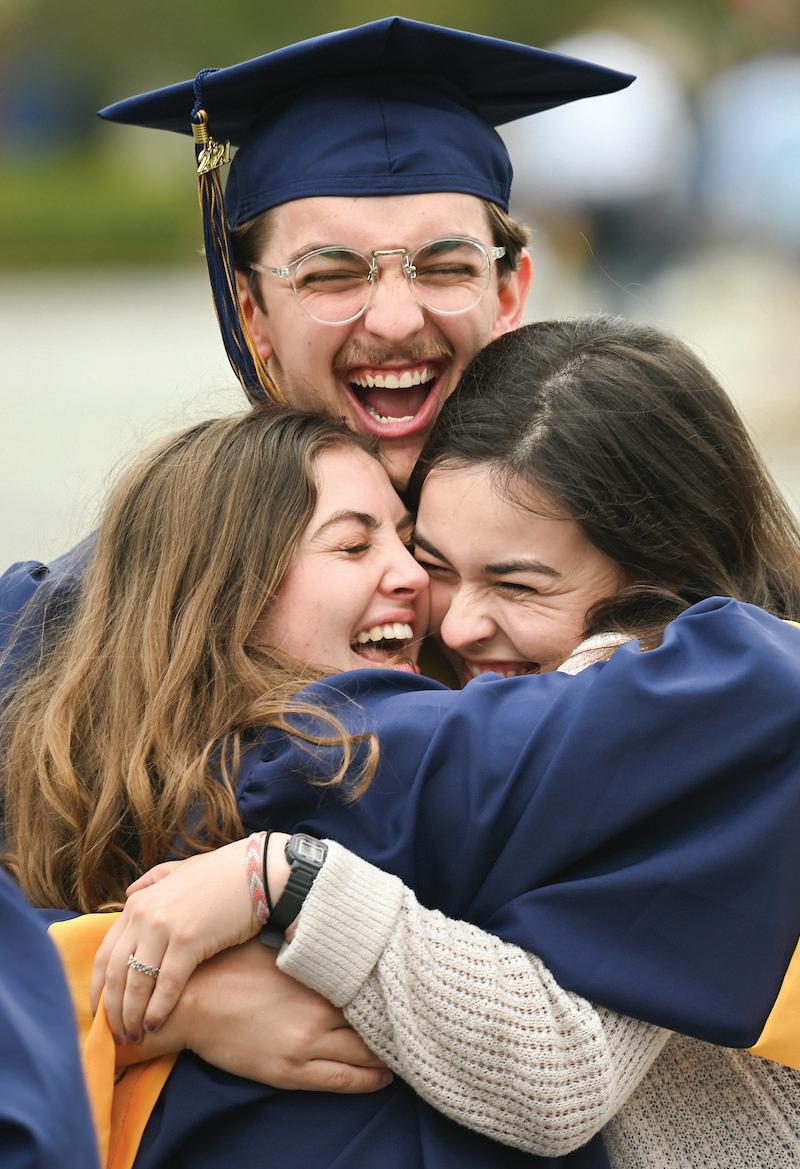
615 McCallie Avenue Department 2602
Chattanooga, TN 37403
ADDRESS SERVICE REQUESTED
[PREF_MAIL_NAME]
[PREF_MAIL_NAME_2]

[ADDRESS 1]
[ADDRESS 2]
[CITY], [STATE] [ZIP]








































































